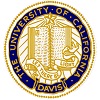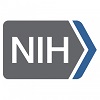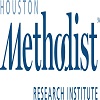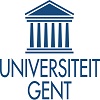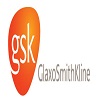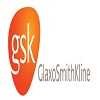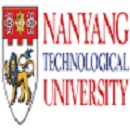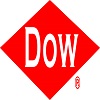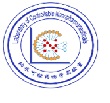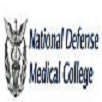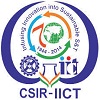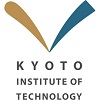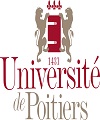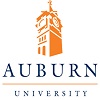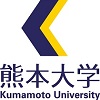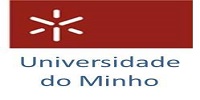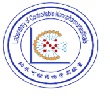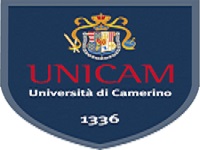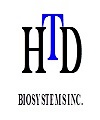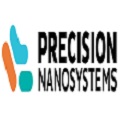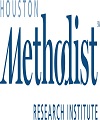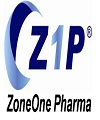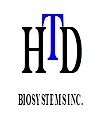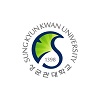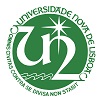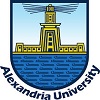Day 2 :
Keynote Forum
Irach B Taraporewala
Sitara Pharmaceutical Group, USA
Keynote: Drug Delivery to the Posterior Segment of the Eye- The Challenges and the Solutions
Time : 09:00-09:25

Biography:
Irach B. Taraporewala has over 30 years’ experiece in drug discovery/drug development R&D. He currently is President of the Sitara Pharmaceutical Consulting Group. He previously served as founder, CEO, President and Chief Technology Officer, and on the Board of Directors of OHR Pharmaceutical, Inc. an ophthalmology drug development company, and as a Drug Development consultant at PAREXEL Consulting. Dr. Taraporewala has published papers in drug development and delivery in reputed journals and has lectured extensively. He received a Ph.D. in Medicinal Chemistry from the Philadelpjhia College of Pharmacy and Science, and has been Principal Investigator on several NIH/DoD biomedical research grants.
Abstract:
With the aging population and the global increase in the incidence of diabetes, chronic diseases of the posterior segment of the eye are becoming increasingly prevalent. Treatment of disorders such as age-related macular degeneration (AMD), diabetic retinopathy, macular edema and uveitis require the effective and reliable delivery of a drug molecule into the choroid and retinal tissue layers in the eye’s posterior segment. Because of the numerous natural barriers to a drug molecule’s entry into the interior of the eye, this is often a challeging proposoition. A number of drug substance classes with vastly different physicochemical properties are being developed to treat such disorders, including small molecule, polypeptides, monoclonal antibodies and oligonucleotide aptamers. With these advances comes the need to develop new drug delivery technologies to achieve sustained therapeutic levels of drug in the target ocular tissues. The presentation will review the current state of drug delivery and recent advances in this area. Both approaches of novel drug formulation methodologies and medical device development are being utilized for the purpose. Use of formulation additives, nanoparticle, microparticle and liposomal approaches are being increasingly developed, as are new types of implantable and injected medical devices that provide for successful elution of therapeutic levels of drug substances into the choroid and retina. These advances are likely to impact the future of drug development for the effective management of ocular diseases of the posterior segment.
Keynote Forum
Joe Jensen
NOBLE , USA
Keynote: Patient centric onboarding: How device trainers increase compliance
Time : 09:25-09:50

Biography:
Joe Jensen is the director of marketing for Noble, an award-winning multisensory product development company for the world’s leading pharmaceutical brands. Noble develops educational and training solutions to improve the lives of patients who self-administer drug delivery device therapies, such as auto injectors, prefilled syringes, or metered dose inhalers.rnrnJensen has a BSBA in Marketing from the University of Florida, and an MBA from Nova Southeastern University. In addition to Noble, Jensen has had the privilege to teach up-and-coming business professionals at two universities, Nova Southeastern University and Lake Sumter State College.
Abstract:
Pharmaceutical companies can combat inconsistent patient training, non-compliance and low adherence is by offering device training and onboarding tools to their patients. Training devices can assist in minimizing common issues seen in patients, such as needle anxiety, injection angle and injection depth among others. To determine the link between device training and patient compliance a survey was conducted consisting of 721 patients. The study investigated whether or not compliance differed between patients who trained with a needleless training device versus those who did not train with a needleless training devices results from the survey found that 61 percent of patients do not thoroughly read the IFU; this is alarming as more than half of patients are simply not reading all of the instructions and are instead relying on demonstrations by HCPs which can be inconsistent or easily forgotten once the patient is in the everyday home environment. Building better tools requires a deeper knowledge of how patients learn, combined with an improved understanding of patients emotional and behavior patterns that occur after the point of diagnosis. Device training can help decrease user error, increase on-boarding confidence, and reduce HCP training times. Proper device training and educational products can help teach patients in the absence of HCPs. Injection training devices and even available to incorporate based on the needs of the brand and needs of patients. Incorporating these types of methods can increase the retention and recall of messages.
Keynote Forum
Subhash C Chauhan
University of Tennessee Health Science Center, USA
Keynote: Development of new therapeutic approaches for pancreatic cancer treatment
Time : 09:50-10:15

Biography:
Chauhan has completed his PhD at the age of 27 years from Central Drug Research Institute (CDRI), Lucknow, India and recieved postdoctoral training from University of Nebraska Medical Center (UNMC), Omaha, NE.. Currently he is serving as a Professor of Pharmaceutical sciences at Yniversity of Tennessee Health Science Center (UTHSC), Memphis, TN, a premier educational institution. He has published more than 85 papers in reputed journals and has been serving as an editorial board member for sevral journals of international repute.
Abstract:
Pancreatic cancer (PanCa), is the fourth leading cause of cancer related deaths in the United States due to the lack of early diagnosis and poor response to available therapeutics. Thus, identification of newer therapeutic approaches that can aid current therapeutics is highly desirable. We have defined multidimensional roles of MUC13 mucin in the pathogenesis and therapeutics/imaging of PanCa. We have reported that MUC13 is highly expressed in human pancreatic tumors but not in normal pancreas and its expression progressively increases with disease stage and metastasis. MUC13 enhances tumorigenesis through modulation of multiple oncogenes (HER2, PAK1, ERK, metastasin/S100A4, TERT, sonic hedgehog (SHH), GATA-1) associated with tumorigenesis/metastasis and desmoplasia. We have also observed a functional interaction of MUC13 and HER2 in PanCa cells and identified miR-145 as a tumor suppressor and a novel regulator of MUC13 in PanCa. Additionally, we have identified drugs that inhibit tumor desmoplasia (targets SHH pathway) and enhances therapeutic response of gemcitabine, thus, can be of therapeutic benefit for PanCa. Moreover, we have generated unique anti-MUC13 mouse monoclonal (MAb) and recombinant humanized (HuAb) antibodies that can efficiently target pancreatic tumors. Furthermore, we have successfully generated multiple patented nanoparticle formulations for antibody guided tumor specific targeted drug delivery and imaging. Taken together, our data suggest a crucial role of MUC13 in PanCa pathogenesis. Utilization of a novel anti-MUC13 monoclonal antibody can be used for the targeted tumor specific delivery of novel nanoparticle formulations in pancreatic tumors. This research will establish the multifaceted role of MUC13 in pathogenesis of PanCa and advance diagnosis and therapy of PanCa to reduce the morbidity and mortality caused by this devastating disease.
- Track 1: Drug Delivery Technology
Track 2: Novel Drug Delivery Systems
Location: Crowne Plaza New Orleans Airport
Session Introduction
Christophe A Serra
CNRS Institut Charles Sadron, France
Title: Droplet microfluidics: A tool to prepare polymeric microcarriers with complex morphologies for new drug delivery strategies

Biography:
Christophe A Serra is a Professor at the University of Strasbourg teaching at the European School of Chemistry, Polymers and Materials Science (ECPM). He received his MS and PhD degrees in Chemical Engineering from the National Engineering School of the Chemical Industries (Nancy) and Paul Sabatier University (Toulouse), respectively. His researches concern the development of intensified and integrated microfluidic-assisted polymer processes for the synthesis of architecture-controlled polymers and functional micro structured polymer particles.
Abstract:
Microencapsulation is used for the protection of drug, controlled release, reduced administration frequency, patient comfort and compliance. In comparison with conventional techniques for encapsulation, microfluidics offers a new route to precisely control over microcarriers’ size, shape, morphology, composition and thus release properties. Continuous flow off-the-shelves capillaries-based microfluidic droplet generators, assembled within minutes, were used to produce size-controlled and drug-loaded plain, core-shell, Janus and Trojan polymeric microcarriers. A single capillary-based device was employed to obtain either poly (ethyl acrylate) plain microparticles or poly (acrylamide) Trojan microparticles embedded with drug-loaded poly (ethyl acrylate) nanoparticles previously obtained from the nano emulsification of the monomer phase within an elongation flow micromixer. On the opposite, a two capillaries-based device was employed to prepare poly (acrylamide)/poly (methyl acrylate) core-shell and Janus microparticles from the emulsification into droplets of 2 immiscible monomer phases that were downstream polymerized by UV irradiation at 365 nm far away from maximum absorption wave length of drugs thus insuring their integrity. This lecture proposes to study the production and the release properties of these microcarriers as well as the subsequent new release strategies (e.g. sequential, synergetic, nanoparticle delivery to GIT etc.) arising from these uncommon morphologies. It will be demonstrated how operating parameters (fluids’ flow rate, nature of the monomer, concentration of the surfactant etc.) can affect the size and the morphology of the polymeric microcarriers and how to tune the sustained release of a single API or 2 incompatible APIs encapsulated into a single microparticle.
Yan He
Sanofi Aventis Group, USA
Title: Amorphous solid dispersions: Utilization and challenges in drug discovery and development

Biography:
Yan He received her Ph.D degree in pharmaceutical sciences from the University of Arizona in 2005 with Dr. Samual H. Yalkowsy as her mentor. She has over ten years of industry working experience in two top pharmaceutical companies. She is currently working as a Principle Research Investigator in Sanofi. She has published nine papers in peer reviewed journals and the Handbook of aqueous solubility data in two versions. She has been serving as a Scientific Advisor to the Journal of Pharmaceutical Sciences.
Abstract:
Amorphous solid dispersion (ASD) can accelerate a project by improving dissolution rate and solubility, offering dose escalation flexibility and excipient acceptance for toxicology studies, as well as providing adequate preclinical and clinical exposure. The prerequisite physicochemical properties for a compound to form a stable ASD are glass forming ability and low crystallization tendency, which can be assessed using computational tools and experimental methods. The experimental polymer excipient screening techniques are discussed. Improved technologies for polymer screening with minimal quantity of drug substance, and the scalability of ASD from bench to commercial are reviewed. Considerations of in vitro evaluations, preclinical animal selection, and the translation of the preclinical results to clinical studies are also discussed. Better understanding of how polymers improve the stability of the amorphous phase in the solid state and how ASD improves bioavailability have facilitated the applications of ASD ranging from discovery research to preclinical development and further to commercialization. With the understanding of how ASDs are currently used in the pharmaceutical industry and what challenges remain to be solved, ASD can be applied to solve drug formulation problems at given research and development stages.
Reinhard Gabathuler
biOasis Technologies Inc., Canada
Title: Development of new protein vectors for the delivery of large therapeutic compounds to treat CNS disorders

Biography:
Gabathuler obtained his PhD in Plant Biochemistry at the Université de Lausanne, Switzerland, in 1982, and completed postdoctoral studies at the University of Washington, Seattle. Over the years, he has held various research positions at the Swiss Institute for Experimental Cancer Research, Lausanne; the Ludwig Institute for Cancer Research at the Karolinska Institutet, Stockholm, Sweden; and the Biotechnology Laboratory of the University of British Columbia, Vancouver, Canada. His research on new vector for delivery of therapeutics to the brain led to the creation of Synapse Technologies Inc., where he began as Vice-President Research (1998). The company was later acquired by BioMarin Pharmaceutical Inc., where Dr Gabathuler assumed the position of Vice President of Brain Research (2002). Dr Gabathuler joined AngioChem Inc. in 2005 as its Chief Scientific Officer and has applied his extensive knowledge in biochemistry, cell biology, and immunology to directing the R&D programs, advancing the company’s product ANG1005 to IND application and clinic. He joined biOasis Technologies Inc. in 2010 as its Chief Scientist, the company is developing a new peptide vector, Transcend (MTf, p97) and its second generation the MTfpep, for the brain delivery of biologics. Since 2013 he is also the President of a new biotechnology company, bioMmune Technologies Inc., concerned with the discovery and development of new therapeutics to restore immune-recognition of tumor cells and to modulate the activity of the immune system.
Abstract:
The central nervous system (CNS) is a sanctuary protected by barriers among them the blood-brain barrier (BBB). The BBB is formed by the specific nature of the endothelial cells of the brain capillaries only allowing brain access to nutrients necessary for brain cell survival and function. These properties of the BBB result in the incapacity of therapeutic compounds small and large to reach the brain at therapeutic concentrations. Various strategies are now being developed to enhance the amount and concentration of these compounds in the brain parenchyma. The development of new technologies such as peptide vectors will achieve the delivery of active agents in therapeutic concentration across the BBB to treat brain diseases such as cancer or neurodegenerative disorders. BiOasis Technologies Inc is dedicated to the development of new platform technologies for the delivery of therapeutics in the brain. The use and development of new active proteins or peptides for drug brain delivery using physiological approaches will be presented. BiOasis Technologies is developing a new vector, Transcend or also known as melanotransferrin (MTf) and its second generation vector MTfpep for the delivery of biologics across the BBB. The application of the MTfpep vector for the delivery of lysosomal enzyme, antibodies and nucleic acids such as siRNA will be presented. We have demonstrated that the MTfpep vector associated to antibodies and to siRNA can deliver a therapeutic concentration of active compounds in the CNS. These studies demonstrate that Transcend can be used as a vector for the transport of biologics across the BBB and capable of shuttling therapeutic levels of a variety of compounds from small anti-cancer agent to larger biologics such as antibodies and nucleic acids across the BBB for the treatment of neurological disorders.
Byeongwoon Song
University of California, Davis, USA
Title: Biocompatible Polymeric Assembly as a HIV Drug Delivery System

Biography:
Byeongwoon Song completed an undergraduate degree from Seoul National University and a Ph.D. degree from Columbia University. He was a postdoctoral fellow and a research associate at Harvard Medical School. He served on the faculty at Emory University before joining UC Davis. His research focuses on virus-host cell interactions, lipid homeostasis, and the design of polymeric drug delivery systems. He has published a number of papers in reputed journals and has been serving as an editorial board member on several journals.
Abstract:
HIV infection and its associated diseases continue to increase despite the progress in our understanding of HIV biology and the availability of a number of antiretroviral drugs. Current HIV treatment regimens require a combination of antiretroviral drugs to be taken at least daily for the remainder of a patient’s life. Adherence remains a significant factor in the success of HIV therapy. A drug delivery system that allows sustained drug release could reduce the medical burden and costs associated with medication non-adherence. Here, we describe a novel supramolecular assembly that contains an anionic polymer hyaluronic acid (HA), cationic polymer poly-L-lysine (PL), and anionic oligosaccharide sulfobutylether-beta-cyclodextrin (SBECD). Physicochemical analysis suggested that HIV reverse transcriptase inhibitors Zidovudine and Lamivudine were successfully encapsulated into an amorphous polymer assembly in a non-covalent manner. Raman microanalysis suggested that the cyclodextrin SBECD contributed to homogeneous incorporation of the antiviral drug into the polymer assembly. Viral inhibition and in vitro drug release studies suggested that the supramolecular assemblies loaded with HIV drugs exhibited potent antiviral activity and maintained sustained drug release. A novel drug delivery formulation described in this study could facilitate our efforts to reduce the morbidity and mortality associated with HIV infections and could be utilized in the design of therapeutic approaches for other human diseases.
Mariusz Skwarczynski
University of Queensland, Australia
Title: Conformational epitopes-based lipopeptide vaccines against Schistosoma mansoni and Necator americanus

Biography:
Abstract:
Hookworms (including Necator americanus) infect more people than HIV and malaria combined, predominantly in third world countries. Human blood fluke (Schistosoma mansoni) also infects millions of people worldwide. Both infections are one of the most important health problems in developing countries. Treatment of diseases related to the infections with chemotherapy have limited efficacy and re-infections after treatment are common. The development of vaccines for these infections could substantially reduce the global disability associated with these parasites. Two proteins crucial for pathogens feeding were chosen as antigens for vaccine design: hemoglobin digestion cascade protease Na-APR-1 from hookworm and cathepsin D hemoglobinase (Sm-CatD) from Schistosoma. In the case of both antigens high-yield production of them (eukaryotic proteins) was problematic. This prompts us to propose peptide-based strategy for the vaccines development. Thus, appropriate B-cell epitopes have been identified and conjugated to self-adjuvanting lipid core peptide (LCP) systems to avoid using generally toxic classical adjuvants. Produced conjugates were formulated into nanoparticles under aqueous conditions. Several series of vaccine candidates were tested in mice model.1-4 The lead candidates induced robust neutralizing humoral immune responses which strongly depended on conformational properties of the peptide epitopes incorporated into conjugates. The use of potentially toxic adjuvants was eliminated and vaccine candidates showed generally good safety profile. These findings are particularly encouraging for the development of single vaccine which can target both helminthiases.

Biography:
Yingqing Ran obtained her PhD in 2004 from University of Arizona, College of Pharmacy under professor Samuel Yalkowsky. She is current Sr. scientist in Small Molecue Pharmaceutics Group. She has broad experience from drug disovery to development. She has published more than 25 papers in reputed journals.
Abstract:
It is well acknowledged that oral bioavailability of a drug candidate is often influenced by factors such as the permeability, physico-chemical properties, and metabolism of the drug. Among the physico-chemical properties, solubility and dissolution rate are considered critical factors affecting the oral bioavailability. For compound G-F, a potent and selective B-Raf inhibitor with poor solubility and solubility limited absorption at high doses, we evaluated a spray-dried amorphous dispersion (SDD) formulation to improve the solubility. A combination of theoretical solubility prediction and in vitro dissolution were used to predict the in vivo exposure of G-F. The predicted value was found to have good agreement with the in vivo exposure resulted from adminstering the crystalline and amorphous form of G-F to rats. In general, this combined approach demonstrated that the amorphous form of G-F offers an advantage over the crystalline form of G-F in terms of solubility; in vitro dissolution and in vivo absorption that were predictable and were consistent with literature. This systemic approach provides a great value for compound development.

Biography:
Dong Seok Kim is a Biochemist with special interest in Immunology and Cancer Biology. He holds Ph. D. degree in Biochemistry, specializing in caner-integrin signaling from Yonsei University, Seoul Korea. His research focused on the ubiquitin-mediated regulation of protein expression during T cell activation in NCI, Bethesda MD. He is currently working on new drug development in Peptron and developing therapeutic strategies for neurodegenerative diseases in NIA, Baltimore MD as a collaborator.
Abstract:
Exenatide, a glucagon like peptide-1(GLP-1) analogue, has been developed and widely used in clinic as a treatment for type 2 diabetes. Accumulating data also suggest that exenatide as well as other Glp-1R agoinists posess therapeutic potential for the neruodegerative disease such as Alzheimer's disease (AD) and Parkinson’s disease (PD) by neuroprotective and neurotrophic mechanisms, which is investigated in several clinical trials for the treatment of neurodegenerative disorders. SmartDepotTM is Peptron’s proprietary technology for the sustained release (SR) microsphere formulations of various agents to provide once weekly or longer dosing regimens. Peptron is currently developing for type 2 diabetes a SR-Exenatide (once every two weeks), PT302, which is evaluated in a phase 2 clinical trial. In addition, the therapeutic potential of Exenatide in neurodegenerative disorders is being evaluated in various disease models such as AD, PD, HD and TBI. Previously, Exenatide, delivered by a micro-osmotic pump, showed a neuroprotective effects in mild TBI (mTBI) animal model. In this study, the pharmaceutically acceptable sustained release (SR) formulation of exenatide, PT340, was examined in the mTBI mice model. mTBI mice displayed deficits in novel object recognition, while PT340-treated mTBI mice performed similar to sham. These data suggest a strong beneficial action of PT-340 in treating mTBI. Convinient dosing regimen of SR-Exenatide will provide additional benefits for the treatment of the neurodegenerative diseases as well as type 2 diabetes: maximizing therapeutic effects, increasing drug compliance, and extending patent coverage.
Alessandro Parodi
Houston Methodist Research Institute, USA
Title: Cellular vectors to enhance the pulmonary delivery of chemotherapeutics

Biography:
Alessandro Parodi completed his PhD at University of Genoa in pharmacological and cosmetic sciences. His post-doctoral studies was initially performed at Advanced Biotechnology Center (Genoa) investigating tumor angiogenesis and the impact of carbon nanostructures on endothelium. He then moved to the Houston Methodist Research Institute (HMRI-Houston) where he distinguished himself in the designing and the development of biomimetic carriers to target inflammatory disease. Currently he is an instructor of the department of Regenerative Medicine at the HMRI and he is author of more than 20 papers and 1 patent describing Cellular Vector technology for the treatment of pulmonary cancer lesions.
Abstract:
In the last decades, great efforts have been dedicated to developing drug delivery systems that are able to accumulate at the pathological site and locally deliver their payload while sparing off-site organs. Oncological diseases, in particular, are the major targets of the scientific community as current treatments are affected by significant systemic toxicity (chemotherapy) and/or biodegradation (biological therapeutics). Current technologies developed for systemic treatments can exert their therapeutic effects only if the cancer lesions are characterized by a targetable vasculature. On the other hand, cancer lesions can be very heterogenous in their blood supply (particularly during metastatic spreading) and, as a result, tumor vasculature can iniquitous or completely absent. This is the case of pulmonary metastases that can occur at different stages of tumor progression and are capable of spreading to many different locations of the organ. For this reason, we hypothesize that a delivery system conceived to target the whole lung could be more effective than carriers designed to target only the cancer lesion. Cellular Vectors (CELVEC) are immune cells isolated from the whole blood, overloaded with chemotherapy (Doxorubicin), and enabled of sustained release for several hours after drug loading. After intravenous injection, they showed 100% accumulation in the dense capillary network of the lungs and they reside in this organs for several hours before they are cleared and digested in liver and spleen. In comparison to free drug administration, they showed an increased concentration of the drug within the lung and enhanced therapeutic efficacy towards cancer lesions.
Amanda E. Brooks
North Dakota State University, USA
Title: Evaluation of polycaprolactone encapsulated vancomycin for controlled drug delivery from a bone void filling putty

Biography:
Amanda Brooks completed her PhD in 2006 from the University of Wyoming and postdoctoral studies at the University of California San Diego and the University of Utah. She is currently an Assistant Professor in Pharmaceutical Sciences at North Dakota State University. She has published more than 35 peer reviewed papers and routinely serve sas an ad hoc reviewer for a variety of journal and granting agencies.
Abstract:
The advent of Total Joint Replacements (TJR), specifically total hip and total knee replacements, has significantly relieved pain and improved quality of life for over a 500,00 Americans per year; however, up to 10% of implants will prove clinically unsuccessful in restoring function and quality of life, requiring a revision procedure to 1) remove the original device and infected bone 2) replace components, and 3) restore lost bone. Although only 1-3% of these initial failures can be attributed to periprosthetic joint infections (PJI), chronic PJI accounts for recurrence rates at revision that skyrocket to a staggering 15-20%. Unfortunately, clinical treatment strategies rely on systemic antibiotic delivery to bone, which is hampered by physiology. Alternatively, implanted local delivery systems such as Antibioitc Eluting Bone Cement provide inadequate pharmacokinetics that inadvertently promote the development of antibiotic resistant bacterial populations. Thus, chronic PJI and the advent of antibiotic resistance could be better addressed by integrating and exploiting local, extended duration antimicrobial delivery directly from malleable osteoconductive bone void filling (BVF) materials. Under these parameters, a resorbable, antibiotic eluting bone void filling putty has been developed and various polymer formulations have been evaluated. By incorporating vancomycin encapsulated in biocompatible and biodegradable PLGA nanoparticles, the duration of effective local vancomycin concentrations released from a patented bone void filling putty can be extended, with the duration of drug release dependent on the ratio of PLA to PGA subunits.
Omathanu Perumal
Professor & Head, Department of Pharmaceutical Scienes South Dakota State University Founder & Chief Scientific Officer Tranzderm Solutions USA
Title: Protein Nanocarriers For Drug Delivery Applications

Biography:
Omathanu Perumal is a Professor and Head of Department of Pharmaceutical Sciences at South Dakota State University. He has over 18 years of experience in developing new drug delivery systems. His group has developed natural protein based drug delivery platform for various drug delivery applications. In addition his group has developed novel topical and transdermal drug delivery approaches. Dr. Perumal has published close to 50 peer reviewed publications, and delivered over 100 presentations. He has four issued patents and two pending patent applications. Dr. Perumal is the founder and Chief Scientific Officer of Tranzderm Solutions Inc. He serves as the editor-in-chief of Journal of Biomedical Nanotechnology (Impact factor: 5.338). He is the recipient of Patricia Walker Skin Cancer Research Award from Skin Cancer Foundation, F.O. Butler Award for excellence in research, Distinguished Researcher award and Intellectual Property & Commercialization award from South Dakota State University.
Abstract:
Protein biopolymers are attractive materials for developing nanoparticulate based drug delivery systems. To this end, food-grade protein biopolymers offer many advantages including biodegradability, demonstrated safety as food materials, and the amino acids can be used for further chemical modification to optimize drug delivery systems. Our research focuses on core-shell nanoparticles developed using zein, a water-insoluble corn protein as the core and hydrophilic/amphilphilic milk proteins, polymers or lipids as the shell. The focus of our research is to understand the influence of core-shell composition on drug delivery by oral and non-oral routes of drug administration. The presentation will focus on the development and in-vitro as well as in-vivo characterization of protein core-shell nanoparticles by oral, topical and intravenous administration for a wide variety of drugs. The talk will present the application of the core-shell nanoparticles for enhancing the water solubility, membrane permeability, drug stability, sustain drug release and improve drug bioavailability by various routes of drug administration

Biography:
Stefaan De Koker is a bio-engineer with a PhD in Biotechnology obtained at Ghent University. From 2012, he has been leading a research team working on the design of novel vaccines that elicit potent cytotoxic T cell responses against cancer and HIV. Currently, he has (co)-authored over 45 A1 papers at the interface between Materials Sciences and Immunology. His research has been published in journals such as Nanoletters, Angewandte Chemie, ACS Nano, Journal of Immunology and PNAS.
Abstract:
Cytolytic T cells (CTLs) have a unique potential to destroy viral infected cells and cancer cells. Vaccination strategies that can elicit CTLs are thus actively persued within the cancer and HIV immunotherapy field. Because induction of CTLs requires antigen to be processed in the cellular cytosol, conventional vaccines relying on the injection of recombinant protein antigens generally fail to evoke CTL responses. To acquire access to the cytosolic route of antigen presentation, we decided to use cell penetrating peptides (CPPs) as carriers for an antigenic cargo. CPPs are small peptide sequences inspired by the protein sequences viruses use to cross cellular membranes. CPPs typically contain multiple cationic amino-acid residues (lysines or arginines) and/or display an amphipatic 3-D organisation. Two different approaches were persued. In a first approach, we used a cationic, amphipathic CPP to deliver antigenic information to the immune system in the format of an mRNA encoding a model antigen. Through its cationic residues, the CPP condensed the mRNA into nanoparticles that allowed antigen expression inside the cytosol of dendritic cells. These CPP-mRNA nanoparticles were superior in evoking CTLs when compared to conventional lipid based mRNA vaccination. In a second approach, we used CPPs to deliver peptide epitopes to the immune system. Again, RNA was used as scaffold for nanoparticle assembly. In this case, the RNA did not encode an antigen, but potently activated innate immune responses. The thus obtained nanoparticles were extermely potent at inducing CTLs and inhibited tumor growth in a pre-clinical murine melanoma model.
Matthew N Bahr
GlaxoSmithKline, USA
Title: The use of high throughput experimentation to enable a deeper understanding of drug behavior

Biography:
Matthew completed his Master of Engineering in Pharmaceutical Manufacturing from Stevens Institute of Technology. He is currently pursuing a part-time PhD in Pharmaceutics from the University of the Sciences in Philadelphia, PA. He is an Investigator at GlaxoSmithKline in King of Prussia PA, and specializes in pharmaceutical research using High Throughput Automation platforms. He has published several papers, and has presented posters and presentations at various conferences.
Abstract:
Performing drug discovery and research on a pharmaceutical compound is a labor-intensive, costly, and time-consuming process. A large portion of that work involves investigating drug behavior in various liquid media. Through the implementation of High Throughput Experimentation, we are able to deploy robotic automation systems to manage screening of a wide variety of experimental conditions with multiple replicates. The conditions allow a researcher to broaden the understanding of the drug’s behavior, and the replicates provide statistical significance. In this talk, we will discuss how automation systems can improve our understanding of drug solubility in a wide variety of liquid systems. These experiments will highlight how a great deal of information can be gained by using a small amount of material. The experiments are performed under various temperature conditions, and the use of replicates helps to target when outliers need to be further investigated. These experiments have also been used to investigate how an active pharmaceutical ingredient interacts with excipients in bio-relevant media to aid in formulation development decisions. Because these experiments are conducted with an automation system, the robot performs the majority of the work, which allows the researcher to focus on data analysis. And because a 96-well plate format is used, a large volume of experimental conditions can be studied in a relatively short period of time.

Biography:
Saha received my PhD degree in Bioinformatics jointly from the University of Arkansas for Medical Sciences University of Arkansas at Little Rock, in Little Rock, Arkansas. Early in my life, I obtained a Bachelor of Science degree in Chemistry from The University of Calcutta in Kolkata, India and in 2006, I completed my Master of Science degree in Bioinformatics from The West Bengal University of Technology in Kolkata, India I have established a scientific profile through high-caliber publications in peer-reviewed journals and conference presentations throughout my career so far. Presently, I am a post-doctoral fellow in Computational Biologist at GlaxoSmithKline (GSK) pharmaceuticals working in the area of microbiome. My interests lie broadly in the area of Computational Biology, Computational and Structural Chemistry, Structure based drug design, Immuno-informatics and Microbiome research.
Abstract:
Tumor associated carbohydrate antigens (TACAs) are a class of glycans with important structural and signaling functions playing a major role in cell proliferation, differentiation, and apoptosis relevant to oncology. Tumor cells expressing TACAs influence prognosis and survival of cancer patients. We have used structure-based approaches to study antigen-antibody interactions in the tumor micro-environment and designed a peptidyl ligand that mimics the molecular topology of TACAs even though they are chemically dissimilar but functionally equivalent molecular structures. The work on antibody-TACA interactions suggests that in designing antibodies, careful consideration should be made in using mutations that enhance the rigidity of an antibody. Our work also suggests that electrostatics play a major role in the recognition of the model antigen examined. Discrimination against wanted targets through repulsive electrostatic interactions might be more fruitful than a strong optimization of target binding. Increased specificity toward one target leads to decreased affinity toward others. Models for TACA targeting reagents are typified by TACA reactive monoclonal antibodies, lectins, and perhaps oncolytic viruses that target sialylated receptors. Peptides reactive with TACA may, in particular, be interesting carbohydrate binding agents, forming the basis of novel drugs that combine the advantages of antibodies and small molecules. We have developed a peptidyl ligand that binds to the TF or T antigen (Galβ1- 3GalNAc). The designed peptidyl ligand was observed functionally to mediate cell signaling of TF expressing cell lines, suggesting that TF antigens might be functionally interesting.
Terry W J Steele
Nanyang Technological University, Singapore
Title: Self assembled photoadditives allow stop and go pharmacokinetic.

Biography:
Terry Steele completed his PhD from the University of Minnesota (2006) and postdoctoral studies from Philipps Marburg University and Nanyang Technological University, where he was promoted to Assistant Professor in 2011. He has published more than 30 papers in reputed journals and has interests in on†demand adhesives, stimulated drug delivery, smart biomaterials, microfluidics, medical implants, and plasma related surface functionalizations.
Abstract:
Biodegradable polyesters are widely applied in the as drug release matrices. However, once manufactured or implanted their release kinetics tend to be fixed with little modulation possible for optimal drug concentrations in the local environment. Various polyester thins have been fabricated into thin films (~50 μm thick) with additives of photocatalytic ZnO nanoparticles, doped LiYF4 upconversion nanoparticle, or combination thereof and irradiated with near infrared (980 nm) laser diodes to induce photocatalysis. Selfâ€assembly of ZnO and LiYF4 nanoparticles allows drug release kinetics enhanced up to 500x more than nonâ€irradiated, polyester films. Drug release kinetics are halted once NIR light is removed, allowing feedback controlled, stop and go drug release therapies.
Franciska Erdo
Pazmany Peter Catholic University, Hungary
Title: Methodological positioning of transdermal microdialysis technique for investigation of drug penetration across the cutaneous barrier

Biography:
Franciska Erdo completed her PhD from Semmelweis University of Medicine, Budapest. She has several years of experience as a scientific researcher in research institutes, in the pharmaceutical industry, at the academy and also at a biotechnological company (contract research organization). She spent four years in the basic research in Germany at the Max-Planck Institute for Neurological Research, Cologne and at Charité University, Berlin. Currently she is a head of laboratory and faculty member at Pazmany Peter Catholic University, Faculty of Information Technology and Bionics. She has published more than 35 papers in reputed journals.
Abstract:
In vivo microdialysis is a widely used technique for monitoring the biochemical changes in the extracellular fluid in a target tissue. There are many types of this methodology depending on the purpose of application (pharmacokinetic/pharmacodynamic studies; biomarker studies, membrane transporter and drug-drug interaction studies etc.), on the target tissue and on the species tested. The first applications were focused on the brain and the neurotransmitters in rodents. Lateron many other organs were tested including the skin in different species. During the last decades transdermal microdialysis technique developed very fast and the number of papers reporting its application in drug research and development increased dramatically. The major advantage of dermal microdialysis is that the preclinical and clinical investigations of topical drug administration can be performed in parallel because its minimally invasive characteristics. For examination of dermal drug delivery and the influence of different penetration enhancer techniques or additives, furthermore comparison of new drug formulations are all possible by skin microdialysis method. Multiple-probe microdialysis approaches make it possible to study free, pharmacologically active drug concentrations in different organs or in the blood simultaneously with the cutaneous monitoring. This modell will be presented, critically evaluated and positioned in the toolbox of different in vivo and in vitro methods for testing dermatopharmacokinetic profile of topically or systemically administered test compounds.
Padma Narayan
Dow Chemical Company, USA
Title: The importance of polymers and surfactants in drug delivery

Biography:
Padma Narayan is an R&D Leader for the Industrial Solutions Product R&D portfolio at Dow Chemical. She has developed products for the agriculture, personal/home care, oil & gas, and coatings industries. She has previously worked at Johnson & Johnson and Pfizer in pharmaceutical formulation development covering oral, transdermal, and injectable dosage forms. Padma received her PhD in chemical engineering at Drexel University and her Bachelors in Chemical Engineering at Villanova University. She is an advisor to editors of Journal of Pharmaceutical Sciences, and active in American Institute of Chemical Engineers. She has over 12 publications and 15 conference presentations.
Abstract:
The challenge of delivering poorly water soluble drugs, with respect to their targeted dose, is prevalent, despite the discovery of new molecules with higher potency. Methods to improve the solubility and bioavailability of drugs have become a paramount element of formulation design and scaleup. Hence various polymers and surfactants have been evaluated as functional excipients which are important formulation components to combat the problem of low bioavailability. A thorough understanding of these excipient properties is highly important to select the most optimal polymer and/or surfactant to improve the performance of the dosage form and drug availability. Important performance factors of polymers include glass transition temperature (Tg), thermal stability, dissolution profiles in organic solvents, and an optimal solubilization of the active pharmaceutical ingredient (API) in the polymer matrix. Formulation techniques that can improve the water solubility of drugs involve amorphous dispersions, improved wetting agents, and ‘spring and parachute’ type approaches where the drug is prevented from precipitating inside the GI tract, or kept stable as amorphous within the dosage form. Polymers that can be used for these applications range from polyvinylpyrrolidone, polyethylene glycols/ oxides, cellulosics such as hydroxypropyl methylcellulose, acrylates, and various copolymers. Surfactants can vary from nonionic materials based on alkylene oxide derivatives, and ionic based on sulfonic acid, quarternary amine, or acrylate functionalities. This talk will provide an overview of designing the best systems with surfactants and polymers to solubilize drugs and improve their bioavailability.
Maria Principia Scavo
University of Kentucky, USA
Title: Multistage vector delivery of sulindac and silymarin for prevention of colon cancer

Biography:
Maria Principia Scavo has completed her PhD at the age of 32 years from University of Bari (Italy) and postdoctoral studies from University of Bari and Methodist Research Institute. She is Researcher Associate at Markey Cancer Center, University of Kentucky and she has published more than 17 papers in reputed journals.
Abstract:
Familiar adenomatous polyposis (FAP) is a genetic condition secondary to germline mutations in the APC gene with a prevalence of one in 10,000 newborns. Patients with this disease will eventually develop colorectal cancer and other cancers of the digestive tract, which typically present themselves in the mid-teens [1]. Prophylactic surgery of the colon is actually the only current standard of care, to avoid malignancy, as long-term exposure to chemo preventive agents such as sulindac (a non-steroidal anti-inflammatory drug) and silymarin (phytoestrogen), usually used to prevent polyps formation in this type of patients, is not feasible. Here, we have used a modified porous silicon-based multistage vector (MSV), rationally designed to deliver therapeutic agents to neoplastic tissue to delivery sulindac and silymarin [11, 12]. Furthermore, the surface of the MSV can be coated with antibodies and other targeting agents that bind to tumor vasculature or neoplastic cells [22, 23]. In this study, MSVs were loaded with poly (ethylene glycol)-block-poly(ï¥-caprolactone) (PEG-PCL) micelles encapsulating sulindac or silymarin. Preferential binding and internalization of these drugs into colon cancer cells was obtained using a targeting strategy against the protein meprin A, which is demonstrate, and we confirmed in our work, is overexpressed in human colon cancer cells and in the small intestine of ApcMin/+ mice. We propose that this delivery system could potentially be used to reduce drug-induced side effects in FAP patients, thus enabling long-term prevention of adenoma formation.
Yusung Kim
University of Iowa, USA
Title: Locally targeted delivery of a therapeutic agents using temperature-sensitive hydrogel

Biography:
Yusung Kim has completed his PhD in 2007 from Medical Physics Department in University of Wisconsin, Madison. Dr. Kim is a Clinical Associate Professor in Radiation Oncology Department in the University of Iowa. He has published more than 29 peer-reviewed papers and has been serving as a grant reviewer for National Science Foundation (NSF) Cyber-Physics System (CPS) Grant in US and Prostate Cancer Grant in United Kingdom.
Abstract:
Hydrogel is a water-like liquid at room temperature but gels at body temperature. Two US Food and Drug Administration-approved polymers were synthesized. Indium-111 (In-111) was used as the radioactive RT-GEL source. The release characteristics of In-111 from polymerized RT-GEL were evaluated. The injectability and efficacy of RT-GEL delivery to human breast tumor were tested using animal models with control datasets of RT-saline injection. As proof-of-concept studies, a total of 6 nude mice were tested by injecting 4 million tumor cells into their upper backs after a week of acclimatization. Three mice were injected with RT-GEL and 3 with RT-saline. Single-photon emission computed tomography (SPECT) and CT scans were performed on each mouse at 0, 24, and 48 h after injection. The efficacy of RT-GEL was determined by comparison with that of the control datasets by measuring kidney In-111 accumulation (mean nCi/cc), representing the distant diffusion of In-111.
Xing-Jie Liang
Chinese Academy of Sciences, China
Title: NDS with encapsulation and delivery efficiency to overcome tumor chemotherapeutic resistance

Biography:
Xing-Jie Liang has completed his Ph.D at the age of 27 years from National Key Laboratory of Biomacromolecules, Chinese Academy of Sciences and postdoc for 5 years at LCB, CCR, NCI, NIH. He was a Research Fellow at Surgical Neurology Branch, NINDS and an Assistant professor at Howard University. Dr. Liang currently is deputy director of Key Laboratory for Biomedical Effects of Nanomaterials and Nanosafety, CAS and a principal investigator at National Center for Nanoscience and Technology of China. He is current Associate Editors of 《Biomaterials》 and《Biophysics Report》; Advisory editorial board member of 《ACS Nano》; Editorial member of 《Advances in Nano Research》, 《Current Nanoscience》, 《Biomaterials Research》, 《Theranostics》and guest editor of 《Biotechnology Advances》
Abstract:
Chemotherapeutics are still the primary options applicable to cancer treatments, however, the chemo-resistance developed by tumor limits their further clinical application. One way to solve this obstacle is to improve the bioavailability of anti-cancer drugs mostly with poor intracellular accumulation. Various Nanoparticle-based delivery systems (NDS) such as dendrimer, vesicles, liposomes, micelles and inorganic materials are fabricated to greatly enhance their stability and blood circulation period. Meanwhile, these NDS are also widely employed in cancer therapy owing to their improved pharmacokinetics and pharmacodynamics arising from the enhanced permeation and retention (EPR). Because traditional DDSs are poor to enter the cells and release drugs up to effective therapeutic dosage, NDS such as Nanomicelle with small size, high drug loading, controlled and sustained drug release and their potential to overcome drug resistance, a shell/core nanostructure self-assembled by amphiphilic macromolecules, constitutes a promising nanocarrier for efficient chemotherapeutics. Drug-encapsulated nanomicelles were also developed under clinical evaluation. NDS has emerged as an effective strategy for pharmaceutical formulation to deliver payloads into the targeted regions and gained particular attention in biomedical field.
Tais Gratieri
University of Brasilia, Brazil
Title: Liposomal voriconazole (VOR) formulation for improved ocular delivery

Biography:
Taís Gratieri has completed her PhD at the age of 26 years from University of São Paulo, with one-year internship at the Saarland University, in Germany, winning the CAPES national award of Best Thesis of the year 2010 in the area of Pharmacy. Following two years of Postdoctoral studies at the University of Geneva, she is now full Professor at the University of Brasilia. Dr. Gratieri published 32 papers in reputed journals, 10 book chapters, 2 books and has 2 deposited patents in Brazil. In 2013 she received the L’Oreal – UNESCO for the Women in Science Award.
Abstract:
Treating infectious eye diseases topically requires a drug delivery system capable of overcoming the eye’s defense mechanisms, which efficiently reduce the drug residence time right after its administration, therefore reducing absorption. In order to try to surpass such administration issues and improve life quality for patients with fungal keratitis, liposomal voriconazol (VOR) formulations were prepared. Formulations were composed of soy phosphatidylcholine (PC) containing or not 1,2-dioleoyl-3-trimethylammonium-propane (DOTAP) and cholesterol. Liposomes were characterized by their drug entrapment efficiency (EE), drug recovery (DR), average diameter (size) and polydispersivity index (PdI). In vitro mucosal interaction and irritancy levels, ex vivo permeation, as well as the short-term stability were also assessed. Liposomal VOR formulation produced with 7.2:40 mM VOR:PC showed to be the most promising formulation: mean size of 116.6 ± 5.9 nm, narrow PdI (0.17 ± 0.06), negative zeta potential (~ -7 mV) and over 80% of EE and yield, remaining stable for at least 30 days in solution and 90 days after lyophilization. This formulation was classified as ‘non-irritant’ after HET-CAM’s test and was able to deliver about 47.85 ± 5.72 ïg/cm2 of VOR into porcine cornea after 30 min of permeation test. Such drug levels are higher than the minimal inhibitory concentrations (MIC) of several fungi species isolated from clinical cases of corneal keratitis. Overall results suggest VOR can be effectively incorporated in liposomes for potential topical treatment of fungal keratitis. This work was supported by CNPq, CAPES, FAPDF and L’Oreal – UNESCO for the Women in Science Awards.
Shunichi Sato
National Defense Medical College, Japan
Title: Targeted drug and gene delivery by pulsed laser-induced Photomechanical waves

Biography:
Shunichi Sato completed his PhD in electrical engineering at Keio University in 1986. Currently, he is an associate professor at the National Defense Medical College, Tokorozawa, Japan. His interest covers a variety of laser applications to medical treatment and diagnosis, including laser-based molecular delivery, photodynamic therapy, photoacoustic imaging and diffuse reflectance imaging.
Abstract:
We have demonstrated highly site-selective gene transfer and transvascular drug delivery in rodents by using pulsed laser-induced pressure waves, which are called photomechanical waves (PMWs). A PMW is generated by irradiating a light-absorbing material with a nanosecond laser pulse. For gene transfer, PMWs were applied to tissue injected with plasmid DNA or siRNA, enabling efficient targeted gene transfer to various tissues in vivo. Gene therapy experiments were performed by using this method. Adhesion of grafted skin was accelerated by delivering hepatocyte growth factor plasmid DNA to the graft and recovery of motor function was enhanced by delivering siRNAs targeting the intermediate filament proteins to spinal cord injury in rats. We also found that PMWs could selectively enhance the permeability of blood vessels. An Evans blue (EB) solution was injected into the rat tail vein, and a PMW(s) was applied to the skin, muscle and brain. We observed laser fluence-dependent extravasation of EB in the tissues that had been exposed to a PMW(s). Uptake of leaked EB into cells in the extravascular space was also observed in the targeted tissues, indicating the capability for site-specific transvascular drug delivery by using a PMW(s). The results for the brain indicated opening of the blood–brain barrier. Since EB molecules are strongly bound with serum albumin in blood, this method can be applied to macromolecules. The method is currently being applied to gliomas in rats to enhance the delivery efficiency of an antitumor drug.
Arik Dahan
Ben-Gurion University of the Negev, Israel
Title: The solubility-permeability interplay and formulation development of low-solubility drugs

Biography:
Arik Dahan is a professor of Clinical Pharmacology at Ben-Gurion University of the Negev, He holds Ph. D. degree in Pharmacy and published more than 20 Research articles in reputed national and international journals.
Abstract:
While each of the two key parameters of oral drug absorption, the solubility and the permeability, has been comprehensively studied separately, the relationship and interplay between the two has been largely ignored. For instance, when formulating a low-solubility drug using various solubilization techniques, do we know what is the concomitant effect on the apparent permeability? Permeability is equal to the drug's diffusion coefficient through the membrane times the membrane/aqueous partition coefficient divided by the membrane thickness. The direct correlation between the intestinal permeability and the membrane/aqueous partitioning, which in turn is dependent on the drug's apparent solubility in the GI milieu, suggests that the solubility and the permeability are closely associated, exhibiting certain interplay between them, and the current view of treating the one irrespectively of the other may not be sufficient. In this lecture, I will describe the research have been done thus far, and present new data, to shed light on this solubility-permeability interplay. It has been shown that decreased apparent permeability accompanied the solubility increase when using different solubilization methods. On the other hand, we have recently revealed that when increasing the apparent solubility by supersaturation e.g. via amorphous solid dispersions, the solubility-permeability interplay is circumvented, and higher drug flux through the membrane and overall absorption is achieved. Overall, the solubility-permeability interplay cannot be ignored when using solubility-enabling formulations; looking solely at the solubility enhancement that the formulation enables may be misleading with regards to predicting the resulted absorption, and hence, the solubility-permeability interplay must be taken into account to strike the optimal solubility-permeability balance, in order to maximize the overall absorption.

Biography:
Amitava Das has completed his PhD from CSIR-Central Drug Research Institute, India and postdoctoral research from Baylor College of Medicine, Houston, TX and Mayo Clinic, Rochester, MN, USA. He moved as a Assistant Professor in the Regenerative Medicines Divison-Department of Medicine, and held joint faculty position at Biochemistry Division-Department of Basic Sciences, Loma Linda University, CA, USA. Presently he is working as a Senior Scientist, CSIR-IICT, India and Assistant Professor AcSIR, India. He has published more than 30 papers in reputed journals and has been serving as an Assistant Editor of International Journal of Surgery and its sister journals.
Abstract:
Mesenchymal and hematopoietic stem/progenitor cells are key cellular components of regenerative medicines, often exploited for translational benefits because of their multi-lineage differentiation and self-renewal capabilities. My lab is presently engaged in studing molecular mechanisms that regulates the cellular physiology of these adult stem cells, MSCs and HSPCs in the hypoxic environment at bone marrow stem cell niche. Hypoxia-induced ROS (at low concentration) at the niche differs from the pathological ROS (at large bolus) that are observed in any tissue injury. In vitro molecular mechanisms of signal transduction pathways in both MSCs and HSPCs exposed to low oxidative stress depicted a characteristic signature in each cell type. An efficient anti-oxidant mechanism was observed to counter balance the oxidative stress in these cells. Furthermore, translational aspects of a wide range of adult stem cells were investigated using an excisional splint wound murine model that mimics the tissue regeneration pattern in human. We recently designed and synthesized biodegradable porous polymer scaffolds under controlled conditions that depicted a marked protection from on-site oxidative stress, regulation of inflammatory (decreased pro-inflammatory and increased anti-infla mmatory) mediators, enhanced engraftment (Sca-1+Lin-CD90+CD133+) and increased neo-vascularization (CD31) in this pre-clinical model. We have also elucidated the molecular mechanisms occuring during penetrability of polymer network by cells via an Akt and Erk-dependent activation of MMP-13 and MMP-2. This lecture will highlight the successful endevours undertaken to overcome the challenges posed by the injury microenvironment onto stem cell –engraftment, proliferation, differentiation and regeneration of the damaged tissues for an efficacious cell transplantation therapies.
Chunsheng Gao
Beijing Institute of Pharmacology and Toxicology, China
Title: Drug itself acting as a pore former in coated pellets for a zero-order release: opportunity and challenge

Biography:
Chunsheng Gao is a PhD in pharmaceutics, and a professor in Beijing Institute of Pharmacology and Toxicology. He has over 15 years of experience in developing oral tailored drug formulation such as coated pellets. He has published more than 60 papers and is the inventor of 10 issued patents.
Abstract:
Drug release from ethylcellulose (EC)-coated pellets exhibits a lag phase – a slow or non-release phase in the first 1-2 hours. The objective of the present study was to evaluate the feasibility of using model drug metoprolol succinate (MS) as a pore former to modify the initial lag phase. MS-layered cores with high drug-layering efficiency (97%, w/w) were first prepared by spraying a highly concentrated drug aqueous solution (60% w/w, 70 °C) on non-pareils without using other binders. The presence of MS in EC coating solution significantly improved the coating process by reducing pellets sticking, which often occurs during organic coating. The overall in vitro and in vivo drug release rates from EC/MS and EC/hydroxypropylcellulose (HPC)-coated pellets were comparable. However, the initial lag phase associated with EC/HPC coating was not observed from EC/MS-coated pellets, which was further confirmed by in vivo drug release in beagle dogs. There may be a maximum physical compatibility of MS with EC, and the physical state of the drug in the functional coating layer of EC/MS (80:20) was simultaneously crystalline and non-crystalline. The functional coating layer with MS as a pore former was not completely stabilized without curing. Curing at 60 °C for 1 day could substantially improve the stability of EC/MS-coated pellets. The physical state of the drug in the free film of EC/MS (85:15) changed partially from amorphous to crystal when cured at 60 °C for 1 day, which should be attributed to the incompatibility of the drug with EC.
Blessing Aderibigbe
University of Fort Hare, South Africa
Title: Development, physicochemical and cytotoxic evaluation of polymeric nanocarriers for dual delivery of metal-based anticancer drugs and potentiating agents

Biography:
Blessing Aderibigbe completed her PhD from University of Witwatersrand in 2010. She did her Postdoctoral studies at the University of Johannesburg, South Africa and Tshwane University Technology, South Africa between November 2010-February 2014. She is a Lecturer at the University of Fort Hare, South Africa.
Abstract:
Platinum-based drugs are used for treatment of various types of cancers. However, they suffer from severe limitations such as drug resistance; non-selectivity resulting in severe drug toxicity: nephrotoxicity, neurotoxicity, ototoxicity etc.; short residence time in the central circulation system as a result of rapid excretion and poor water solubility. To improve the therapeutic effects of platinum drugs, they are used in combination with DNA-demethylating agent, incorporated onto drug delivery systems and incorporated onto drug delivery systems together with a potentiating agent that are non-chemotherapeutic agents. In this research polymeric nanocarriers were designed for incorporation of platinum (II) drugs for long term and short term administration. Platinum (II) complex was incorporated onto polymeric nanocarriers together with potentiating agents or DNA-demethylating agent. The physicochemical properties and cytotoxic effects of the nanocarriers were evaluated and the results suggested that the nanocarriers are potential drug delivery systems for combination therapy.
Ndidi Ngwuluka
University of Jos, Nigeria
Title: Under-utilized natural polymers: Contributory solutions to unmet pharmaceutical needs?

Biography:
Ndidi Ngwuluka is a faculty at Department of Pharmaceutics, University of Jos, Nigeria. She completed her PhD from University of Witwatersrand, Johannesburg South Africa. Her research interests are natural polymers, drug delivery and nanotechnology. Dr Ngwuluka is an editorial board member and reviewer for a number of journals. She is a member of a host of professional bodies including ACS, AAPS and CRS. She is a recipient of a number of awards including the prestigious Fulbright scholar program, L’Oreal/UNESCO for women in science and CV Raman Fellowship. She holds a patent and has over 30 publications in peer-reviewed journals.
Abstract:
The pursuit to improve healthcare thereby enhancing benefits for patients and reducing the burden on healthcare workers and the system appears a passionate one amongst researchers and the pharmaceutical and related industries. The quest is to improve efficacy of existing drugs, reduce frequency of dosing (controlled release), minimize adverse effects, improve adherence, reduce risk to health workers and their involvement as well as reduce impact on the environment. Most of these challenges can be tackled by drug delivery technologies and excipients play a critical role in accomplishing these and formulation innovations. While synthetic and natural polymers are utilized, natural polymers are fundamental in assuring effectiveness, safety and delivery of benefits with minimal risk to patients and health workers. With regards to minimal health and regulatory risk, and little or no impact to the environment, polymers from nature and especially from edible plants should be of focus. Studies have shown that the under-utilized natural polymers may be contributory solutions to help solve unmet needs. Of a growing concern are pediatric formulations of which safety is a special consideration and there is the urge for new excipients. These under-utilized polymers, the studies so far undertaken, the challenges and their regulatory requirements will be discussed.
- Track 2: Novel Drug Delivery Systems
Location: Crowne Plaza New Orleans Airport
- Track 4: Pharmaceutical Nanotechnology
Track 6: Smart Drug Delivery Systems
Session Introduction
Ruxana T Sadikot
Emory University School of Medicine, USA
Title: Nanomedicine for acute lung injury

Biography:
Sadikot has completed her MD from Bombay University, MRCP from London, United Kingdom and Pulmonary and Critical Care training form Vanderbilt University in Nashville, TN. She is a Professor of Medicine at the Emory University in Atlanta GA and is the Section Chief of Pulmoanry and Critical Care Medicine at the Atlanta VAMC. She has published more than 100 articles in peer reviewed journals and serves on the She serves on the editorial board of Clinical Respiratory Medicine, Biomedical Research International and Annals of American Thoracic Society.
Abstract:
Acute lung injury (ALI) and acute respiratory distress syndrome (ARDS) represent a heterogenous group of lung disease in critically ill patients. Despite the increased understanding of the molecular pathogenesis of ARDS, the mortality remains unacceptably high, ranging from 34% to 64%. Hence, ARDS represents an unmet medical need with an urgency to develop effective pharmacotherapies. Several promising targets that have been identified as potential therapies for ARDS have been limited because of difficulty with delivery. In recent years nanomedicine has become an attractive concept for the targeted delivery of therapeutic and diagnostic compounds to injured or inflamed organs. Nanoscale drug delivery systems have the ability to improve the pharmacokinetics and increase the biodistribution of therapeutic agents to target organs, thereby resulting in improved efficacy and reduced drug toxicity. We have developed novel long-acting biocompatible and biodegradable phospholipid micelles (size, approximately 15 nm) to inhibit triggering receptor expressed on myeloid cells 1 (TREM-1) a key effector that contributes to the patiehogenesis of lung injury. Realizing short half-life of peptide drugs (minutes) hampers their clinical use, we invented micellar TREM-1 blocking peptide and glucagon-like peptide-1(7-36) amide (GLP-1) where each peptide drug is stabilized in its active form (alpha-helix) and its bioactivity is prolonged for hours in vivo. These long-acting micellar nanomedicines provide significant advancement in the treatment of experimental ALI which have the potential to be extended to treat patients with this devastating disease.
Arti R Thakkar
Eshelman School of Pharmacy, USA
Title: Pediatric Population a Miniature Adult – A Delusion?

Biography:
Arti R. Thakkar has completed her PhD from MS University of Baroda, India. She is a former visiting scholar, King’s College of London, UK and former postdoctoral research associate, UNC Eshelman School of Pharmacy, University of North Carolina at Chapel Hill, USA and former coordinator, GLP approved drug testing laboratory, ISFAL, India. She has 12 years of research & teaching experience and she is an associate professor at Baddi University, India. She has published 35 research papers in reputed journals and has been serving as an editor/reviewer of a reputed journal. She has one patent and a book chapter to her credit.
Abstract:
Pediatric population represents a changing and dynamic population due to the ontogenetic changes that occur during their development. As it has been observed that pediatrics does not deal with miniature adults, with reduced doses, but has its own independent range and horizon. So prescribing the medication for pediatric population is a unique challenge as their anatomy and physiology is completely different from adults. In particular, age-related changes in gastrointestinal (GI) physiology (transit time, pH, GI fluid composition, specifically bile salt concentrations) and in intestinal/hepatic drug metabolizing enzymes, as well as formulation parameters (dose volume, solubility) can contribute to differential absorption of orally administered drugs in children versus adults. For example, oral bioavailability of the potent antifungal lipophilic drug, voriconazole, in children (2-10 years) is almost half that in adults (45-65% versus 96%). The present study describes the facts and current scenario in formulation development aspects for pediatric populations and determining various factors responsible for variable bioavailability of pediatric medicaments in children. Absorptive transport of pediatric drugs was measured across intestinal tissue using Ussing-type diffusion chamber as a function of Fasted-State Simulated Intestinal Fluid (FaSSIF) with variable bile salt concentration. Dissolutions studies were determined of the model drugs as a function of volume and media with variable bile salt concentrations. It was found that dissolution and absorptive transport of model drugs has reduced rate of dissolution and variable absorptive transport. Thus, normalization of the adult dose may lead to poor and unsafe estimates of the pediatric dose.
Seth Pincus
Children’s Hospital and LSU School of Medicine,USA
Title: Development of anti-HIV double variable domain antibodies that bind both gp120 and gp41 on the envelope protein

Biography:
Seth Pincus received his M.D. from New York University. Following a Pediatrics residency at the University of Utah, he trained in the Immunology Branch of NCI. His first faculty appointment was at the University of Utah, followed by stints at the NIAID Rocky Mountain Labs, at Montana State University where he Chaired the Department of Microbiology, and from there to his current position in the Departments of Microbiology and Pediatrics, at LSU School of Medicine, New Orleans. He has published over 100 peer-reveiwed papers, textbook chapters, and invited articles. He has served on or chaired multiple NIH study sections and editorial boards
Abstract:
The HIV envelope protein (Env) is the sole virus protein expressed on the surface of virions and infected cells. Consequently, the development of anti-Env antibodies (Abs) for therapeutic applications is the subject of intense investigation. Anti-Env Abs can be used to neutralize cell-free virus and kill HIV-infected cells. After almost two decades with little progress, the introduction of recombinant DNA techniques has lead to a spate of highly effective and broadly reactive neutralizing Abs in the past ten years. HIV Env consists of two, non-covalently linked glycoproteins, the transmembrane anchor gp41, and the receptor-binding surface protein gp120. Neutralizing sites have been identified on both gp120 and gp41. Working with anti-HIV immunotoxins, we have also mapped the targets of these cytoxic agents. Interestingly, there was little correlation between neutralization and cell killing activities. In an effort to increase cytotoxic activity, we have made double variable domain (DVD) Abs that bind to structures on gp120 and gp41 that are the most effective targets for anti-HIV immunotoxins. Neither Ab, alone or in combination, neutralized HIV well. We were initially disappointed that the DVD’s offered no improvement in cytotoxicity over a mixture of the two Abs, but then bemused to discover that the DVDs were highly effective at neutralizing HIV infection. Activity was both broad and potent. I will discuss mechanisms whereby two weakly neutralizing Abs become more potent when combined into a single molecule.
Md. Zaidul Islam Sarker
International Islamic University, Malaysia
Title: Continuous micronization and particle formation of medicinal extracts using different techniques of supercritical anti-solvents

Biography:
Md. Zaidul Islam Sarker obtained his PhD degree from University Sains Malaysia and his specialization is in food, pharmaceutical and nutraceutical sciences. He has an interest in developing nutritional foods through processing or isolation of natural products that can have pharmacological value. He has expertise in supercritical fluid extraction, marine food products, food processing and food properties, bioactive compounds, fats and oils, pharmaceutical and nutraceutical formulations and rheological properties with over 250 publications in ISI and Scopus indexed journals, patents, books, reports and presentation at international conferences in the area of food science and technology. Professor Sarker is one of the youngest professors in Malaysia who established several techniques and developed methods in the area of supercritical fluid extraction which are worldwide recognized by the researchers and highlighted in newspapers and international magazine/ press released. Professor Dr. Sarker was the winner of the American Chemical Society (ACS) Young Scientist Award at PACIFICHEM 2010 and is a winner of more than 20 medals including Gold, Silver and Bronz Medals as the main and a Co-inventor in exhibitions at the national and international levels including the Malaysia Technology Expo 2014 (MTE-2014) and International Invention, Innovation and Technology Exhibition (ITEX-2013). Professor Dr Sarker was awarded as an outstanding researcher at the university level in 2013 and 2014. His researches are well-cited (Google Scholar: above 2400, Scopus: above 1600) with high h-index (Google Scholar: 28, Scopus: 24).
Abstract:
Md. Zaidul Islam Sarker obtained his PhD degree from University Sains Malaysia and his specialization is in food, pharmaceutical and nutraceutical sciences. He has an interest in developing nutritional foods through processing or isolation of natural products that can have pharmacological value. He has expertise in supercritical fluid extraction, marine food products, food processing and food properties, bioactive compounds, fats and oils, pharmaceutical and nutraceutical formulations and rheological properties with over 250 publications in ISI and Scopus indexed journals, patents, books, reports and presentation at international conferences in the area of food science and technology. Professor Sarker is one of the youngest professors in Malaysia who established several techniques and developed methods in the area of supercritical fluid extraction which are worldwide recognized by the researchers and highlighted in newspapers and international magazine/ press released. Professor Dr. Sarker was the winner of the American Chemical Society (ACS) Young Scientist Award at PACIFICHEM 2010 and is a winner of more than 20 medals including Gold, Silver and Bronz Medals as the main and a Co-inventor in exhibitions at the national and international levels including the Malaysia Technology Expo 2014 (MTE-2014) and International Invention, Innovation and Technology Exhibition (ITEX-2013). Professor Dr Sarker was awarded as an outstanding researcher at the university level in 2013 and 2014. His researches are well-cited (Google Scholar: above 2400, Scopus: above 1600) with high h-index (Google Scholar: 28, Scopus: 24).

Biography:
El-Refaie Kenawy is distinguished Professor of polymer chemistry at University of Tanta, Egypt. He is the director of Chemisty Depatment. He is internationally recognized in the field of polymer chemistry. He is a graduate of Tanta University, Egypt. He did his PhD. work according to channel Scheme at Strathclyde University, UK. He worked as postdoctoral fellow and visiting professor at many international universities as Pisa University, Gent University, Virginia Commonwealth University, Tokyo Institute of Technology, and Tanta University. Professor Kenawy is a member of editorial board of many international journals. He participated actively in many international conferences. In 2004, he was Abdul Hameed Shoman Award for Young Arab Scientists in Chemistry 2004. the most cited award from Miser El-Kher Foundation, Egypt. In 2014, he was awarded Tanta University Prize. He has more than 110 publications and reviews in international journals. Prof. Kenawy and others from VCU, USA explored for the first time the use of nanofibers for drug delivery applications. Prof. Kenawy has h index 22, and more than 4000 citation. Prof. Kenawy is a member of EGYPTIAN UNIVERSITIES PROMOTION COMMITTEE for Organic Chemistry (2013-2015) and he is the vice president of National committee of Pure and Applied Chemistry in Egypt.
Abstract:
Microbial infection remains one of the most serious complications in several areas. Particularly in medical devices, drugs, health care and hygienic applications, water purification systems, hospital and dental surgery equipment, textiles, food packaging and food storage. Polymeric antibiotics gain interest from both the academic research and industry due to their potential to provide quality and safety benefits to many materials. Low molecular weight antibiotics suffer from so many disadvantages such as toxicity to the environment, and short-term aability and bacterial resistance. To overcome problems associated with the low molecular weight antibiotics, they are prepared by based on polymer molecules. The use of antibiotics based on polymers offers promise for enhancing the efficacy of some existing antibiotics and introducing new antibiotics to the market. The new development prolonging the lifetime of the novel antibiotics. Research concerning the development of the novel antibiotics represents a great a challenge for both academic world and industry. This lecture reviews the state of the art of the novel antibiotics. In particular, it is discussing the requirements of the novel antibiotics, factors affecting their activities, methods of synthesizing them. Some fields of applications and future and perspectives in the field.
- Track 4: Pharmaceutical Nanotechnology
Track 5: Nucleic Acid Based Drug Delivery
Track 7: Vaccine Design and Delivery Technology
Location: Crowne Plaza New Orleans Airport
Session Introduction
Kristen K Comfort
University of Dayton, USA
Title: The ability of physiological variables to modulate nanomaterial behavior is an emerging concern for nano-based drug delivery techniques

Biography:
Kristen Comfort obtained her Ph.D. in Chemical Engineering from North Carolina State University and completed her postdoctoral studies as a National Research Council fellow with the Air Force Research Laboratories at Wright Patterson Air Force Base. She is currently an Assistant Professor of Chemical Engineering and is serving as the Director of the graduate BioEngineering program. Dr. Comfort’s research focus is on the evaluation of nanomaterial behavior and subsequent biological responses in enhanced in vitro environments; an area in which she currently has over 15 publications, many of which in high impact journals.
Abstract:
Colloidal gold nanoparticles (AuNPs) are being increasingly utilized in biomedical applications, such as drug/gene delivery and bio-imaging techniques. However, the effectiveness of these procedures are highly dependent upon sustained, strong interactions between AuNPs and the surrounding environment; referred to as the nano-bio interface. Recently, it has been established that this interface is reliant on the formation of a protein-NP complex. The protein corona surrounding NPs is dynamic by nature and is dependent upon numerous factors including the environmental composition and specific physicochemical properties of the particles. However, little is currently known about how physiological variables, such as fluid flow and biological fluids outside of blood, modulate the protein-NP complex and subsequent particokinetics. We demonstrated that the addition of shear stress, introduced through dynamic fluid movement within the cellular system, severely disrupted the AuNP protein corona, resulting in an altered nano-bio interface and AuNP deposition efficiency. As drug/gene delivery require high AuNP delivery to a target, this loss of NP transport potential highlights a current limitation within the field. Moreover, circulating NPs have a strong likelihood of encountering multiple physiological environments, such as interstitial and lysosomal fluids; of which the influence on the nano-bio interface has yet to be explored. We determined that when dispersed in these biological fluids, both the protein corona and the deposited AuNP dose was altered; as a function of original surface chemistry. Given these results, it was clear that physiologically variables should be accounted for during design and evaluation of nano-based drug delivery systems.

Biography:
Kazuya Kikuchi graduated from the PhD course of the University of Tokyo (Japan) in 1994 and did his postdoctoral training at UCSD and the Scripps Research Institute. He was appointed as a research associate at the University of Tokyo (Japan) thereafter and promoted to associate professor. He was appointed as a full professor at Osaka University in 2005. During these period he became involved in molecular imaging probes development for both fluorescence imaging and magnetic resonance imaging. He is focused both in in vivo imaging and single molecule cellular imaging.
Abstract:
MRI (Magnetic Resonance Imaging) has been clinically used since it yields images of deep regions in living animal bodies. We have focused on 19F MRI. 19F MRI is suitable for monitoring particular signals concerning biological phenomena because 19F MRI shows little endogenous background signals. Thus, 19F MRI probes that can visualize biological functions have been increasingly reported. We have developed the 19F MRI probes to detect protease activity and gene expression on the basis of paramagnetic resonance enhancement (PRE) effect. We also have developed a novel 19F MRI contrast agent, fluorine accumulated silica nanoparticle for MRI contrast enhancement, which is composed of a perfluorocarbon core and a robust silica shell. Multifunctional mesoporous silica nanoparticles (MSNs) are good candidates for multimodal applications in drug delivery, bioimaging, and cell targeting. A novel drug delivery carrier based on MSNs, which encapsulated highly sensitive 19F magnetic resonance imaging (MRI) contrast agents inside MSNs, will be introduced. The nanoparticles were labeled with fluorescent dyes and functionalized with small molecule-based ligands for active targeting. This drug delivery system facilitated the monitoring of the biodistribution of the drug carrier by dual modal imaging (NIR/19F MRI). Furthermore, we demonstrated targeted drug delivery and cellular imaging by the conjugation of nanoparticles with folicacid. An anticancer drug (doxorubicin, DOX) was loaded in the pores of folate-functionalized MSNs for intracellular drug delivery. The release rates of DOX from the nanoparticles increased under acidic conditions, and were favorable for controlled drug release to cancer cells.
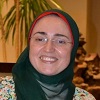
Biography:
Noha Nafee is Assistant Professor, Department of Pharmaceutics, Faculty of Pharmacy, Alexandria University, Alexandria, Egypt, where she got her Bachelor and Master degree in Pharmaceutical Sciences. In 2004, she was awarded a 2-years DAAD doctoral scholarship in the Department of Biopharmaceutics and Pharmaceutical Technology, Saarland University, Saarbruecken, Germany, where she received her PhD degree (2008), followed by an Alexander von Humboldt post-doctoral fellowship in the Department of Pharmaceutical Technology and Biopharmacy, Marburg University, Marburg, Germany (2012-2014). Prof. Nafee has published 23 research papers in peer-reviewed journals (h-index 10 and >600 citations).
Abstract:
Hepatocellular carcinoma (HCC) is the third most common cause of cancer death worldwide. Epirubicin (EPI), an anthracycline derivative, is one of the main line treatments for HCC. However, serious side effects including cardiomyopathy and congestive heart failure limit its long term administration. Our main goal is to develop a delivery strategy that ensures improved efficacy of the chemotherapeutic agent together with reduced cardiotoxicity. In this context, EPI was loaded in chitosan-PLGA nanoparticles linked with asialofetuin (EPI-NPs) selectively targeting hepatocytes. In an attempt to reduce cardiotoxicity, targeted EPI-NPs were coadministered with tocotrienols. EPI-NPs significantly enhanced the antiproliferative effect compared to free EPI as studied on Hep G2 cell line. Nanoencapsulated EPI injected in HCC mouse model revealed higher p53-mediated apoptosis and reduced angiogenesis in the tumor. Combined therapy of EPI-NPs with tocotrienols further enhanced apoptosis and reduced VEGF level in a dose dependent manner. Assessment of cardiotoxicity indicated that EPI-NPs diminished the high level of proinflammatory cytokine tumor necrosis factor-α (TNF-α) as well as oxidative stress-induced cardiotoxicity as manifested by reduced level of lipid peroxidation products (TBARS) and nitric oxide (NO). EPI-NPs additionally restored the diminished level of superoxide dismutase (SOD) and reduced glutathione (GSH) in the heart. Interestingly, tocotrienols provided both antitumor activity and higher protection against oxidative stress and inflammation induced by EPI in the heart. This hepatocyte-targeted biodegradable nanoparticle/tocotrienol combined therapy represents intriguing therapeutic strategy for EPI providing not only superior efficacy but also higher safety levels.
Hajime Mori
Kyoto Institute of Technology, Japan
Title: Insect virus-derived protein microcrystals for slow-release carriers of functional proteins
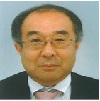
Biography:
Hajime Mori has completed his PhD at the age of 26 years from Nagoya University and postdoctoral studies from The National Institute of Agrobiological Sciences. He is a trustee and vice-president, and also professor of Kyoto Institute of Technology. He has published more than 90 papers in reputed journals and has been serving as the editor of Journal of Insect Biotechnology and Sericology.
Abstract:
Micron-sized proteinaceous particles called polyhedra are the main vectors by which virus particles transfer from insect to insect. Polyhedra also stabilize virions thereby allowing them to remain viable for long periods in the environment. We developed two targeting strategies for the encapsulation of foreign proteins into polyhedra. Diverse foreign proteins can be encapsulated into polyhedra by fusing a polyhedron-targeting tag sequence at the C- or N-terminus of the foreign proteins. The remarkable stability of polyhedra is thought to be applied on slow-release carriers of cytokines and other proteins for tissue engineering or vaccination. Under physiological conditions, polyhedral microcrystals are inert and insoluble. These properties allow us to employ polyhedra as versatile micron-sized carriers. Polyhedra encapsulating bone morphogenetic protein-2 (BMP-2) enhanced chondrogenic and osteogenic differentiation of progenitor ATDC5 cells. Absorbable collagen sponge (ACS) impregnated with BMP-2 polyhedra had enough osteogenic activity to promote complete healing in critical-sized bone defects, but ACS with a high dose of rhBMP-2 showed incomplete bone healing, indicating that BMP-2 polyhedra promise to advance the state of the art of bone healing. Angiogenesis was promoted by polyhedra encapsulating vascular endothelial growth factor. Endostatin-encapsulated polyhedra showed potent anti-endothelial activity, indicating that they may have promise for the treatment of squamous cell carcinoma by inhibiting tumors angiogenesis. Polyhedra show properties of stabilization, retention, and long release which are very important for drug delivery systems, and therefore I would like to establish optimal protocols including dosage and scheduling for tissue engineering or antiangiogenic therapy.
Adriana Avila Flores
Auburn University, USA
Title: Branched amphiphilic cationic oligo-peptides for delivery of HPV-16 DNA vaccines

Biography:
Avila completed her Ph.D. in Biochemistry and Molecular Biophysics at Kansas State University in four years. Her thesis work focused on developing a method to deliver genes into cells using peptide nano-spheres. Currently she is a research associate at Auburn University working in the field of drug delivery and microfluidics. She helped to establish a biotechnology company, Genetadi Biotech SL, in Bilbao, Spain from 2008 to 2010 (before start graduate school) and she had been a founding partner since that year. she had published five research papers and one review article (corresponding author in the review). Presently she is serving as a co-chair for the Gordon Research Seminar in Cancer Nanotechnology.
Abstract:
Recently, peptides have shown potential as a new family for gene carriers. Peptides are easy to synthesize, quite stable and expected to produce minimally immunogenic and inflammatory responses. We recently reported on a new class of branched amphiphilic peptides that self-assemble into extremely stable nano-spheres. The Branched Amphiphilic Peptides Capsules (BAPCs) display a uniform size of 20-30 nm and are resistant to detergents, proteases and chaotropes. Comparable to how histones compact DNA to form nucleosomes, the 20- 30 nm BAPCs interact with plasmid DNA acting as a cationic nucleation centers with the negatively charged DNA coating the outer surface, generating peptide-DNA nanoparticles with sizes ranging between 50-250 nm. The BAPCs-DNA nanoparticles are capable of delivering plasmid DNA of different size into cells in culture, yielding high transfection rates and minimal cytotoxicity. Furthermore, BAPCs were tested for in vivo delivery of a DNA vaccine previously designed to activate immune responses and capable of controlling tumors induced by type 16 human papilloma virus (HPV-16). The BAPCs-DNA nanoparticles enhanced the vaccine-induced antitumor protection and promoted efficient activation of murine dendritic cells without significant toxic effects. Together these results demonstrate that the interaction of double stranded DNA to branched amphiphilic oligo-peptides nanoparticles represents a promising new in vitro and in vivo non-viral gene delivery system.

Biography:
Shashi Ravi Suman Rudrangi, MRSC, is a Formulation Research and Development Scientist at Bristol Laboratories, United Kingdom. He previously worked as a Research Associate at the Medway Centre for Pharmaceutical Sciences, University of Greenwich, UK. He pursued his Bachelor's degree in Pharmacy from Kakatiya University, India in 2008; his Masters and PhD degrees in Pharmaceutical Science at the University of Greenwich in 2010 and 2015, respectively. He works on the ‘Inclusion complexation of poorly soluble drugs with cyclodextrins’ using organic solvent-free supercritical carbon dioxide processing method. He is a Member of the Royal Society of Chemistry, UK; Member of the Academy of Pharmaceutical Sciences Great Britain, UK and a Life Member, Chemical Research Society of India. He is the current Chair of the Student Association of the Academy of Pharmaceutical Sciences, Great Britain.
Abstract:
The purpose of this study was to evaluate a single-step, organic solvent-free supercritical fluid process for the preparation of olanzapine-methyl-β-cyclodextrin complexes with an express goal to enhance the dissolution properties of olanzapine. The complexes were prepared by supercritical carbon dioxide processing, co-evaporation, freeze drying and physical mixing. The prepared complexes were then analyzed by differential scanning calorimetry, X-ray powder diffraction, scanning electron microscopy, solubility and dissolution studies. Computational molecular docking studies were performed to study the formation of molecular inclusion complexation of olanzapine with methyl-β-cyclodextrin. All the binary mixtures of olanzapine with methyl-β-cyclodextrin, except physical mixture, exhibited a faster and greater extent of drug dissolution than the drug alone. Products obtained by the supercritical carbon dioxide processing method exhibited the highest apparent drug dissolution. The characterization by different analytical techniques suggests complete complexation or amorphisation of olanzapine and methyl-β-cyclodextrin complexes prepared by supercritical carbon dioxide processing method. Therefore, organic solvent-free supercritical carbon dioxide processing method proved to be novel and efficient for the preparation of solid inclusion complexes of olanzapine with methyl-β-cyclodextrin. The preliminary data also suggests that the complexes of olanzapine with methyl-β-cyclodextrin will lead to better therapeutic efficacy due to better solubility and dissolution properties.
Philippe Bertrand
University of Poitiers, France
Title: Delivery of epigenetic drugs against asbestos cancer

Biography:
Philippe Bertrand obtained his PhD in 1992 at Poitiers University, developing asymmetric synthesis from the chiral pool. He worked on alkaloid hydroxylation in superacids during his post-doctoral research from 1992 until 1995. He obtained a lecturer position in Poitiers to develop asymmetric synthesis of anticancer com-pounds. He started to work on epigenetics in 2004, developing synthetic methods to access epigenetic inhibitors and their use in delivery systems for therapeutic or imaging purposes.
Abstract:
Several aggressive cancers such as the asbestos cancer are not correctly treated with conventional drugs. New therapeutic strategies include epigenetic modulators able to stop cancer cell growth by renormalization of their epigenetic landscape leading to apoptosis. As this epigenetic renormalization requires hours to be effective and because epigenetic drugs have short half live, the use of delivery systems is especially suited to improve the therapeutic efficacy of epigenetic treatments. We present our results in this particular application of drug delivery systems. The delivery systems presented is based on polymeric nanoparticles prepared by Ring-Opening Metathesis Polymerization (ROMP). Each macromonomer can be functionalized to access a library of functional macromonomers that are the copolymerized to generate (multi)functional 300 nm sized nanoparticles. This system is able to selectively accumulate in the tumours in subcutaneous or peritoneal mice models. The epigenetic drugs are covalently loaded and released inside cancer cells after internalization through acidic vesicles. This intracellular delivery leads to an increase of histone acetylation in the nucleus due to the delivery of inhbiitors of histone deacetylases, the biological target in our strategy. The particles are not detected in other organs as well as the epigenetic effect, indicating the highly selective effect of our strategy. In a peritoneal mice model of asbestos cancer, 80% of tumor reduction was obtained when the free compounds gave no results.
Ulo Langel
Stockholm University, Sweden
Title: Transfection by cell-penetrating peptides based on transportans

Biography:
Ülo Langel is a Professor at the Department of Neurochemistry, Stockholm University, and at the Institute of Technology, Tartu University. Prof. Langel has been selected as a Fellow Member of International Neuropeptide Society (1995), and is a member of Academia Europeaea. He is a coauthor of more than 400 scientific articles and 20 approved patents or patent applications.
Abstract:
Introduction of PepFect and NickFect technologies for oligonucleotide transfection by transportan-based cell-penetrating peptides in vitro and in vivo is described. Recent data on mechanisms and applications of PepFect strategies are summarized on the variety of different cargoes including plasmid, antisense and siRNA oligonucleotides.

Biography:
Goldie Oza is currently faculty at CINVESTAV-IPN, Mexico and published many scientific abstracts in National and international journals of pharmaceutical sciences.
Abstract:
Encapsulation of High density lipoprotein (HDL) is a novel paradigm which is being explored for Cancer therapeutics. Copper nanoparticles have been emerging as an efficient scaffold for both drug-deliveries as well as for orchestration of HDL, thus mimicking biological vesicles transporting metal complexes. In this reported work, we emphasize specifically on tethering copper nanoparticles with Lapatinib as well as capecitabine drugs since they are combinational therapy for breast cancer. Moreover breast cancer cells undergo aberrant cell proliferation and cholesterol is a known complex playing an important role in cancer cell progression. Hence, HDL has been used for assembling on the surface of copper nanoparticles which are already tethered to anti-cancer drugs. Such HDL nanostructured assembly are known to either target receptor- mediated endocytic holoparticle or scavenger receptors of the B-class. Further to make the complex more synaphic, folate are attached on HDL nanostructured assembly, so that the uptake is further augmented. The mechanism involves selective uptake of HDL-cholesteryl esters - copper nanoparticle- anti-cancer drug complex and then there is subsequent degradation of cholesteryl esters in an extralysosomal compartment which can be mediated by hormone-sensitive lipase. In comparison to natural HDLs, such biomimicked HDL competes with the receptors, thus making cells to be deficient of cholesterol, leading to cellular cholesterol efflux and limited cholesterol delivery. Further, Lapatinib which is a tyrosine kinase inhibitor of human epidermal growth factor receptor typè 2 and epidermal growth factor receptor is very much efficient in regulating the growth of cancer cells in combination with capecitabine. This combinatorial approach of anticancer drug delivery as well as cholesterol starvation selectively induces apoptosis and is an efficient modus operandi for Cancer Therapeutics.
Tatiana Samoylova
Auburn University, USA
Title: Filamentous phage as platform for vaccine design and delivery
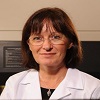
Biography:
Tatiana Samoylova received MS degree in Botany and Zoology from Kiev National University (Ukraine) in 1982 and PhD in Biochemistry from the Institute of Experimental Botany (Minsk) in 1991. She was a Postdoctoral Research Associate at the Institute of Plant Genetics & Crop Plant Research (Germany). In 1996, she joined the Scott-Ritchey Research Center (SRRC) Auburn University College of Veterinary Medicine (AUCVM) as a Postdoctoral Fellow. Currently, Dr. Samoylova holds joint appointments as a Research Professor at SRRC and the Department of Pathobiology (AUCVM).
Abstract:
Bacteriophages (phages) are viruses that infect and impact bacteria, but are not harmful for animals. Filamentous phages are long (~1µm) and thin (~7nm) particles that are characterized by well-defined geometry and uniformity. The core of a phage particle is a DNA molecule, which is surrounded by several different phage coat proteins. Phage particles can be modified to display fusion (non-phage) peptides as a part of the coat proteins. More often, the modifications are accomplished via genetic manipulations with phage DNA, while other types of alterations, for example, chemical conjugation of synthetic peptides to the phage surface proteins are possible. Fusion peptides displayed on filamentous phages were demonstrated to induce humoral and cell-mediated immune responses, making phage particles an attractive antigen delivery system for development of new vaccines. Recombinant phage particles displaying antigenic peptides were used as vaccines for treatment of melanoma, HIV, Alzheimer’s disease, candidiasis, rabies, etc. The focus of our research group is on development of phage-based vaccines against various reproductive targets for contraception of wild and feral animals. For example, we have developed phage-peptide constructs that stimulate production of neutralizing antibodies against gonadotropin releasing hormone (GnRH), a major player in hypothalamus-pituitary-gonadal cascade of reproductive events. Multiple phage-GnRH constructs were generated and tested alone or in combination with adjuvants in mice. They were shown to stimulate production of neutralizing anti-GnRH antibodies that suppress testosterone, demonstrating their potential for immunocontraception or for treatment of hormone-dependent reproductive cancers. Funded by Found Animals Foundation D0910-S10 and Auburn University College of Veterinary Medicine.
Irach B. Taraporewala
Sitara Pharmaceutical Group, USA
Title: Nanoparticle and microparticle-based drug delivery of ophthalmic pharmaceuticals

Biography:
Irach B. Taraporewala has over 30 years’ experiece in drug discovery/drug development R&D. He currently is President of the Sitara Pharmaceutical Consulting Group. He previously served as founder, CEO, President and Chief Technology Officer, and on the Board of Directors of OHR Pharmaceutical, Inc. an ophthalmology drug development company, and as a Drug Development consultant at PAREXEL Consulting. Dr. Taraporewala has published papers in drug development and delivery in reputed journals and has lectured extensively. He received a Ph.D. in Medicinal Chemistry from the Philadelpjhia College of Pharmacy and Science, and has been Principal Investigator on several NIH/DoD biomedical research grants.
Abstract:
Nanoparticle and microparticle drug delivery is a highly attractive prospect for the development of future ophthalmic pharmaceutical products. For chronic ocular diseases such as glaucoma, where Patient compliance with eye drop therapy is low, sustained release therapy via nanoparticle or microparticle drug delivery approaches is especially of promise. It also is a viable approach for treatments post ophthalmic surgical procedures. While the ocular anatomy provides for a number of physical barriers for drug molecule entry, penetration and release in therapeutically viable concentrations at the specific site within the eye where it is therapeutically required , newer approaches to nanoparticle and microparticle design and fabrication also allow for the targeting of the innermost structures of the eye such as the macula and retinal pigment epithelium through such delivery systems. The presentation will address the novel biopolymeric materials, fabrication techniques and therapeutic approached currently being developed as advances in nanotechnology and microparticle technology for ophthalmic indications including cationic, amphoteric and non-ionic particle technologies and non-emulsion based fabrication techniques such as the use of hydrogel templates and 3D printing approaches to the generation of nanoparticles and microparticles for ophthalmic treatments. The regulatory technical challenges of developing such novel ophthalmic drug products and their solutions will also be addressed.

Biography:
Hidetoshi Arima has completed his PhD at the age of 28 years from Kumamoto University and worked in Eisai Co., Ltd in Japan. Next, he moved to Tokyo University of Pharmacy and Life Sciences, and then he came back to Kumamoto University, Japan, 1998. He was a vesited researcher in 2001 in University of Southern California, CA, USA. He is a professor in Graduate School of Pharmaceutical Sciences, Kumamoto Universiy, Japan. He has published more than 190 papers in reputed journals and has been serving as an editorial board member of Scientific Reports and so on.
Abstract:
So far, we have reported that gene, shRNA and siRNA transfer activity of PAMAM dendrimers (G2-G4) was strikingly increased by conjugation with -cyclodextrin (-CyD) through both an increace in the endosomal escaping effect and a decreasing in cytotoxicity of the dendrimers. However, the PAMAM dendrimer conjugates with -CyD (-CDEs) have no cell-selective gene and oligonucleotides transfer activity. Therefore, we have recently prepared various -CDEs having targeting ligands such as folate, lactose and mannose/fucose as nonviral vectors to delivery DNA, shRNA, siRNA, miRNA and decoy DNA to tumor cells, hepatocytes and Kupffer cells, respectively, since they possess cell-selective entry, endosomal escaping ability, serum resistance and high safe profile. Most recently, we demonstrated that 2PAMAM dendrimer (G3) conjugates with glucuronylglucosyl-β-cyclodextrin (GUG--CDE (G3)) provided superior properties to -CDE (G3). Also, we fairly recently found that sacran, a megamolecular polysaccharide derived from Aphanothece sacrum, enhanced cellular uptake and the RNAi effect of siRNA complexes with -CDEs via a formation of ternary complexes. I will introduce the recent progress of -CDEs and GUG-- CDEs as cell-selective nonviral vectors.

Biography:
Miguel Gama is Associate Professor with Habilitation at Minho University in Portugal. He has published more than 120 papers in international journals, edited 4 books and is the co-founder of a spinoff, BCTechnologies, in 2013. His main interests are related to the development of Drug Delivery Sysems using natural biomaterials, in particular polyssaccharides, and the development of bacterial cellulose technologies in different fields of activity, including the biomedical, food products and eletronic devices.
Abstract:
Tuberculosis (TB), a disease caused by the highly virulent Mycobacterium tuberculosis, currently ranks as the second world’s deadliest infectious disease, right after HIV/AIDS. The most recent data provided by the World Health Organization reports that around 9 million people were diagnosed with TB in 2013, having 1.1 million of those died from the disease. Additionally, as a result of overuse and misuse of antibiotics, multi-drug resistant TB (MDR-TB) strains are emerging at a rate of about 3.5% over recent years. Treatment for MDR-TB is based on the administration of pyrazinamide together with second-line drugs. In this case, treatment can last up to 24 months. Noteworthy, whereas first-line TB treatment generally costs around $22 per patient, MDR-TB treatment-associated costs can range from $4000 to $9000 per patient. Within the context of the above-mentioned drawbacks associated to current therapies and the emergence of multi-drug resistant strains, a new class of drugs – antimicrobial peptides (AMPs) – arises as promising candidates for treatment of infectious diseases and TB in particular, either for administration as a monotherapy or combined with other drugs. In this work, the encapsulation of a peptide derived from the human cathelicidin LL37 in a hyaluronic acid nanogel, and its use for the treatment of mycobacteriosis will be reported. Insight on mechanistic aspects of the action of the AMP, including the internalization pathways and intracellular fate/stability of the peptide, as well as the assessment of its therapeutic potential, including data on the treatment of M. Avium and M. Tuberculosis infected mice will be described.
Yaping Li
Chinese Academy of Sciences, China
Title: Metastatic cancer therapy using ph-responsive nanoparticles for sirna and anticancer drug co-delivery

Biography:
Prof. Yaping Li earned his PhD degrees in Fudan University in 2001. He devoted himself in drug targeted delivery based on nanotechnology. Prof. Li has authored over 200 scientific papers in high impact journals including Nat Medicine, JACS, Adv Mater, ACS Nano, Adv Funct Mater, Small, etc., and applied for 50 patents. He is the winner of National Science Fund for Distinguished Young Scholars and Shanghai Outstanding Academic Leaders. Prof. Li is also the Chief Scientist of National Basic Research Program of China in Nanoscience and Nanotechnology (2009), Vice Chairman of Pharmaceutics Society of Shanghai Pharmacy Association, and the Member of Branch of China in the International Controlled Release Association (CRS).
Abstract:
The combination of chemotherapy and RNA interference is a promising approach for efficient cancer therapy. However, the success of such a strategy is hampered by the lack of suitable vectors to coordinate small interfering RNA (siRNA) and chemotherapeutic drug into one single platform. We herein report a novel triple-layered pH-responsive micelleplex loading siRNA and anticancer drugs for treatment of metastatic breast cancer. The micelles were self-assembled from acidic pH-sensitive amphiphilic copolymers. At pH 7.4, the therapeutics (e.g., paxlitaxel, alkynated cisplatin and doxorubicin) was encapsulated in the hydrophobic micelle core and siRNA was loaded on the positively charged micelle shell to form the micelleplexes. The PEG corona can prevent protein absorption during blood circulation, minimize non-specific interaction with the reticuloendothelial system, and prolong the systemic circulation of the micelleplexes. Upon cellular uptake, the micelles are dissociated in the early endosomes to release anticancer drug payload due to protonation of the micelle core. Using a 4T1 breast cancer model, we demonstrate that this novel micelleplex co-loaded with anti-cancer drugs and siRNA is able to simultaneously inhibit tumor growth and suppress distant metastasis of the cancer cells by blocking the signaling pathway regulating tumor metastasis. The results reported in this study suggest that siRNA and anticancer drug co-delivery using pH-responsive micelleplexes is a promising strategy for efficient treatment of metastatic cancer.
Giovanni Filippo Palmieri
University of Camerino, Italy
Title: Acoustic spectroscopy for the characterization of pharmaceutical nanosystems

Biography:
Giovanni Filippo Palmieri completed his PhD at the age of 27 years from University of Camerino and was visiting scientist at the School of Pharmacy of Strasbourg University .postdoctoral studies from Stanford University School of Medicine. His research is devoted to the physical characterisation of pharmaceutical systems. He published more than 80 papers in reputed international journals that deal with pharmaceuticals.
Abstract:
Acoustic spectroscopy is one of the emerging technologies developed to minimize processing, maximize quality and ensure the safety of pharmaceutical, food and chemical products. The operating principle of acoustic spectroscopy is the measurement of the ultrasound pulse intensity and phase after its propagation through a sample. The main goal of this technique is to characterise concentrated colloidal dispersions without dilution, in such a way as to be able to analyse non-transparent and even highly structured systems. After a simplified explanation of the theory behind acoustic spectroscopy and a brief discussion on the two types of instruments that can be found on the market, the presentation describes what type of information can be obtained from different dispersed systems for pharmaceutical use. More precisely, it is shown as acoustic spectroscopy can give the particle size distribution of micelles and other types of self assembled systems, or emulsions and microemulsions. The case of poloxamer 407 water system and that of an entire ternary diagram are given. At the same time, microheological considerations about the structure of the system can be done. Then, some examples of transitions that can be monitored by acoustic specrtroscopy are shown: thermal self assembling and thermogelling, liposomes thermal transitions, dissolution kinetics of polymers in water, mucoadhesion of polymers.
Ahmed Abdelfattah Hafez Abdellatif
Azhar University, Egypt
Title: Distribution, Targeting, and Internalization of somatostatin receptors subtype 2

Biography:
Ahmed A. H. Abdellatif completed his PhD and working as Professor at Azhar University, Egypt
Abstract:
Somatostatin receptor subtype 2 (SSTR2) is widely expressed in normal and tumor cells, which is clinically used for diagnostic purposes. Targeting therapeutic gold and quantum dots nanoparticles (Q.G.NPs) to the SSTR2 using different somatostatin analogue such as somatostatin (SST), octreotide (OCT) and or vapreotide (VAP), would be a promising approach for certain cancer cells, since this would reduce side effects and increase drug delivery efficacy to the target site, highly over-expressing the respective receptors. The study focused on the methods of preparation and the characterization of different Q.G.NPs tagged with SST, OCT, VAP. This was followed by successful cellular uptake experiments and in vivo studies of the Q.G.NPs. The results showed a successful characterization for Q.G.NPs with SST, OCT and VAP. Cellular uptake showed highly specific interactions with cells using confocal microscopy and flow cytometry. The Q.G.NPs can be displaced from their receptor, which relates to the specificity of the interaction with somatostatin receptor. In vivo study showed a massive accumulation of Q.G.NPs in the blood as compared to the other organs, which may relate to the interaction with somatostatin receptor overexpreed on the Monocytes. In conclusion, the presented Nanoparticles can target the somatostatin receptor overexpressed on blood cells, which will serve in treating some blood disease such as Leukemia.
Hyungil Jung
Professor, Yonsei University, South Korea
Title: A novel and minimally-invasive drug delivery system via dissolving microneedle

Biography:
Professor Hyungil Jung has completed his Ph.D. from Cornell University and his postdoctoral from California Institute of Technology (Caltech). Since then he had received various awards in biotechnology field such as “Outstanding Contributions”, “Best Contribution Award”, “Excellence in Research Award”, “The 31st Industry-academic Cooperation Award”, “Best technology Award”, “Best Teaching Award” and many more because of his outstanding research ability in biotechnology field.
Abstract:
Transdermal drug delivery is regarded as an important route with high potential for drug delivery to overcome limitations of oral delivery and hypodermic injections. Among various delivery methods available, microneedles have gained interest due to their ability in delivering drugs with a high efficacy compared with topical application. Microneedles are referred to microscopic needles that are capable of delivering pharmaceutical compounds, proteins and even cosmetics into the skin in a minimally invasive manner. Especially, dissolving microneedle patches contain micron scale dissolvable needles that are capable of delivering encapsu¬lated compounds into the skin without causing any pain. Therefore, dissolving microneedles are expected to replace the current hypodermic injections in near future. Beside cosmetics and beauty dissolving microneedle patches that are already in the market, we have developed insulin microneedle patches that are capable of delivering the required dosage of insulin to mouse and are currently improving this system for clinical trial tests. We are continuously working on developing limitations of microneedle based delivery system and that makes them as one of the fastest growing dissolving microneedle research groups in the world with various novel researches in this field.
- Track 9: Novel Bio therapeutics and Drug Delivery Systems
Session Introduction
Rajiv Nayar
HTD Biosystems, USA
Title: Trials and Tribulations of novel Drug Delivery systems

Biography:
Rajiv Nayar is Founder and President of HTD Biosystems. Previously, Dr. Nayar was at Bayer where he established the formulation and drug delivery Group in the biotechnology division and was responsible for managing the formulation and drug delivery activities within the global Bayer network on protein/peptide based drugs. He was a recipient of 3 consecutive Presidential Achievement Awards at Bayer for implementing Continuous Improvement Processes in pharmaceutical development. He is an inventor on 15 patents and has authored over 70 publications. He is the inventor the Bayer’s albumin-free Factor VIII formulation (Kogenate® FS). Prior to Bayer, he was at the Canadian Liposome Company and involved in the development of liposomal doxorubicin (Caelyx®, Myocet®). Dr. Nayar received his Ph.D. (Biochemistry) from University of British Columbia and was a MRC fellow at M.D Anderson Tumor Institute.
Abstract:
Demand for drug delivery product in the US will rise 6.1% yearly to $251 billion in 2019. Parenteral products will grow the fastest, driven by monoclonal antibodies and polymer/liposomal encapsulated medicines. Not only are the drugs becoming more complex (e.g. DNA, siRNA, mRNA, cell-based, modified biologicals, etc) but the DDS employ novel materials and configurations (smart polymers, tunable liposomes, mesoporous silica, graphene nanotubes and biosensors, etc). A significant challenge for both drug and drug delivery systems is to produce existing and emerging drug technologies in a manner that improves drug administration for the patients. Advantages of complex drug delivery systems over traditional systems are more convenient routes of administration, rate or efficacy and duration of drug activity, decreased dosing frequency, improved targeting, as well as reductions in toxic metabolites. An equally important consideration is the concept of making the drug delivery system a pharmaceutically acceptable drug product. The challenges involved in making a Drug Product Delivery System (DPDS) are issues that include safety, stability, manufacturability, cost of goods, and being reimbursable. These issues that need to be addressed in CMC of the DPDS will be discussed as they are a critical component in bringing a novel DDS containing a biopharmaceutical to market. Some recent case histories will be discussed as examples.
Andrea L Armstead
Precision Nanosystems, Inc. BC
Title: The NanoAssemblr Platform: Novel Nanoparticle Engineering for Delivery of the Genetic Toolbox

Biography:
Andrea Armstead obtained her PhD in Pharmaceutical & Pharmacological Science from the West Virignia School of Pharmacy and a BS in Biochemistry from Washburn University. She has expertise in nanoparticle toxicology and relevant background in nanoparticle drug delivery and formulation with relevant publications in journals such as PloS One, Toxicology & Applied Pharmacology and the International Journal of Nanomedicine. She has been working in the Boston-area biotechnology industry since completion of her PhD and is currently the East Coast regional Field Applications Scientist for Precision Nanosystems, Inc.
Abstract:
Conventional methods used to produce nanomedicines have several challenges such as batch-to-batch reproducibility and difficulty scaling from the research bench to clincal batch volumes. Additionally, these methods are labor intensive and the compositional scope of the nanomedicines produced is limited. Our NanoAssemblr™ platform technology provides an alternative, automated, microfluidics-based approach for nanoparticle manufacture which solves challenges associated with convetional methods and enables rapid, reproducible and scalable formulation of a variety of nanomedicines. Here, we will describe the microfluidic platform and its applications in the development of a variety of nanoparticle (NP) formulations, including liposomes, dense-core lipid NP (LNP) and polymeric NP for drug delivery applications. The strategies used to tune physical attributes (size, encapsulation efficiency) and to scale the manufacture of NP at μL to 10s of L will be discussed. A case study detailing the mechanism of LNP-mediated nucleic acid delivery into primary neurons for in vitro and in vivo genetic studies will be presented.
Alessandro Parodi
Houston Methodist Research Institute, (HMRI-Houston) USA
Title: Complementary Drug Delivery Systems to Overcome Biological Barriers that Characterize Systemic Treatment
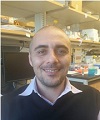
Biography:
Alessandro Parodi completed his PhD at University of Genoa in pharmacological and cosmetic sciences. His post-doctoral studies was initially performed at Advanced Biotechnology Center (Genoa) investigating tumor angiogenesis and the impact of carbon nanostructures on endothelium. He then moved to the Houston Methodist Research Institute (HMRI-Houston) where he distinguished himself in the designing and the development of biomimetic carriers to target inflammatory disease. Currently he is an instructor of the department of Regenerative Medicine at the HMRI and he is author of more than 20 papers and 1 patent describing Cellular Vector technology for the treatment of pulmonary cancer lesions.
Abstract:
Biological barriers maintain the homeostasis between different compartments of the body and regulate the transport of every therapeutic administered systemically. Upon intravenous injection, the tumor vascular barrier, the tumor extracellular matrix and the tumor cell membrane barriers represent major obstacles hampering the delivery of the drug to the target. In this work we showed advanced surface modification that enable nanoparticles to overcome all these barriers allowing for a more efficient targeting of tumor microenvironment at a systemic, tissue and cellular level. Proteolipid surfaces coatings directly purified form the cell membrane of leukocytes allowed for the targeting and negotiation of tumor vascular barrier. Proteolytic coatings derived from the stem of the pineapple were efficient in increasing particle penetration and diffusion in tumor extracellular matrix in order to target hypoxic tumor region. Finally polymer science enabled synthetic carriers with pH responsiveness and ability to escape the endolysosomal compartment after internalization and to deliver a payload within the cytoplasm of the cells. A complete characterization of the different systems was performed through chemical technique and imaging analysis. Fluorescent and confocal microscopy was used to characterize the systems in vitro, while intravital microscopy allowed for determining particle targeting and bioactivity. In this work we showed different techniques to negotiate and overcome several biological barriers that stand and between the administration point and the target.

Biography:
Charles Noble completed his PhD in chemistry at Louisiana State University working with conductive polymers and dendrimers. His postdoctoral work at University of California San Francisco focused on antibody-targeted immunoliposomes and drug delivery to brain tumors. As a Senior Scientist at Merrimack Pharmaceuticals (formerly Hermes Biosciences) he was a key contributor to development of a liposomal irinotecan (MM-398) which was approved by the FDA in 2015 for treating pancreatic cancer and is marketed as Onivyde®. In 2011 he co-founded ZoneOne Pharma, Inc. to develop treatments for transfusional iron overload and has the role of President and Scientist. He has co-authored over 40 publications.
Abstract:
Heart failure is the most common cause of death in children and adults with blood transfusion dependent thalassemia or sickle-cell disorders. This is because long-term transfusions cause an accumulation of iron in the body from the broken down heme in hemoglobin. As humans lack a means of eliminating iron, the iron eventually builds to toxic levels in the vital organs, causing generation of reactive oxygen species followed by cellular apoptosis and necrosis. Chelation therapy is prescribed for patients who have excess iron. Marketed chelators have severe drawbacks. Desferal® (deferoxamine, DFO) requires an infusion time of greater than 40 hours per week. Exjade® and Jadenu® both have black box warnings from the FDA related to renal failure, hepatic failure and GI hemorrhage. Patient compliance is the greatest problem with current chelation therapies. We have devised a novel, stable liposome (LDFO) formulation containing a high concentration of the iron chelator deferoxamine. Toxicology studies show that prototype formulations have no adverse effects well above the therapeutic dose for LDFO indicating that it is better tolerated than Desferal®. Our results show that LDFO efficiently removes iron from the liver and spleens of iron overloaded mice. A single treatment with LDFO results in greater iron excretion than a 14 day continuous infusion of Desferal®. Successful translation of LDFO to patients would result in improved liver iron removal and less frequent dosing and than current options. This work was supported by NIH SBIR Grant 1R43D075429-01 and 1R43D075429-02.
Mitra Mosharraf
HTD Biosystems, USA
Title: Prediction and prevention of protein aggregation in multi-dose products

Biography:
Mitra Mosharraf has over 15 years of experience in biotech drug development. She is the chief scientific officer and partner at HTD Biosystems, a CRO in the San Francisco Bay Area. Prior to joining HTD, she served in different scientific positions at Pharmacia Corporation and at Pfizer Global Manufacturing. She received her MSc. in Pharmacy and Ph.D. in Pharmaceutical Sciences from Uppsala University. She has authored several scientific papers in peer reviewed journals and proceedings. Her scientific interest lies in material sciences, molecular interactions and their impact on drug development. In her free time, Mitra volunteers for the American Association of Pharmaceutical Scientists.
Abstract:
One of the major challenges in development of biotherapeutics is protein aggregation. Proteins tend to aggregate in solutions. These aggregates are often more immunogenic and less bioactive. Protein aggregation affects the quality attributes of the drug and has to be prevented throughout the shelf-life of the product. There are different mechanisms behind protein aggregation and appropriate formulation strategies can be employed to address this issue. Multi-dose formulations containing biotherapeutics often use phenolic compounds to ensure sterility. However, these preservatives are known to destabilize the protein and may cause aggregation. In this presentation, the interaction between phenolic preservatives and proteins was investigated using isothermal calorimetry in a TAM instrument in the presence and absence of different stabilizers . The effect of different additives on the enthalpy of binding of phenol to protein was evaluated. and thereby phenol induced aggregation of protein could be predicted. The initial aggregation of the protein in the presence of phenol was studied by size exclusion chromatography in the absence and presence of stabilizers. It was shown that aggregation was prevented using the found excipients, as predicted by this novel strategy.
Aryo Sorayya
Engimata Inc., USA
Title: Overcoming the Cold-Chain: Designing a Novel Freeze-Stable Vaccine
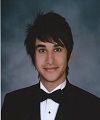
Biography:
Aryo Sorayya is a student at Stanford University and the founder of Engimata Inc., a start-up aimed at development of future vaccines. Prior to coming to Stanford, he undertook a research project on vaccine stability which culminated in numerous awards, including an Intel ISEF 1st Place in Health and Medicine, Grand Prize at the CA State Science Fair, AAPS Intel Award, Sheikh Zayed Young Scientist Award, John Muir Health Award and Contra Costa County Rising Star Award. Aryo also worked at NASA Ames Research Center as part of Stanford’s iGEM team and won a gold medal at the International Genetically Engineered Machines Competition (iGEM).
Abstract:
Freeze-sensitive vaccines represent over 50% of the $749 million UNICEF spent on all vaccines in 2010, and with the rate of exposure to freezing temperatures in developed and developing countries at 13.5% and 21.9%, respectively, millions of lives and dollars are lost every year. In this presentation, the problem of freeze-sensitivity of current vaccines is reviewed, and a solution is presented using a new liposomal adjuvant consisting of a specific lipid composition that currently is not in the market. Two different case studies are presented where this novel vaccine model has been shown to be successful as a novel approach for developing freeze-sensitive vaccines, improving vaccine stability and reducing the risks associated with accidental freezing of vaccines.
- Young Researchers Forum
Location: Crowne Plaza New Orleans Airport
Session Introduction
Dong Hee Kim
Sungkyunkwan University, Korea
Title: Enhancing neurogenesis and angiogenesis with targeted delivery of stromal cell-derived factor-1α by using a pH-sensitive polymer in a rat stroke model

Biography:
Kim is under PhD course in Samsung Advanced Institute for Health Sciences and Technology, Sungkyunkwan University. And, he is a senior researcher in Samsung Medical Center.
Abstract:
We hypothesized that delivery of molecules that regulate the microenvironment after cerebral infarction can influence regeneration potential after stroke. Stromal cell-derived factor-1α (SDF-1α) is a chemoattractant molecule that increases in the infarct region after stroke and induces neurogenesis, angiogenesis, neuroprotection, and stem cell homing. Thus, we evaluated the effects of targeted delivery of SDF-1α by using a pH-sensitive polymer, a synthetic macromolecule with potential for targeted drug delivery in acidic conditions, to enhance therapeutic neurogenesis and angiogenesis in a rat model of permanent middle cerebral artery occlusion. First, the neurogenic and angiogenic potential of SDF-1α was measured in vitro and in vivo. We observed that SDF-1α intracerebrally infused into the striatum increased BrdU/doublecortin-positive cells in the subventricular zone, and vWF-positive microvessels and apoptotic cells in the ischemic border zone 7 days after cerebral ischemia. We then investigated the effect of a SDF-1α-Cy5.5-loaded pH-sensitive polymer systemically administered 3 hours after onset. ELISA showed increased tissue levels of SDF-1α in the ischemic region, indicating that the pH-sensitive polymer effectively delivered SDF-1α into the ischemic region. In addition, optical imaging showed that Cy5.5 signal increased in the infarct region 24 hours after administration. Immunohistochemistry data showed that delivered SDF-1α enhanced neurogenesis and angiogenesis, but did not influence cell survival or inflammation. The results of the present study show a novel approach to control the microenvironment by using targeted delivery of a polymer. SDF-1α-loaded pH-sensitive polymers can be used as pH-triggered targeting agents and effectively modify the microenvironment to increase innate neurorestorative processes.
Cristiana de Azevedo
Universidade Nova de Lisboa, Portugal
Title: Analysis of the controlled drug release (CDR) from biopolymer nanoparticles during the initial burst using a novel modeling method

Biography:
Cristiana de Azevedo has completed her MSc from the Faculty of Engineering, University do Porto (Portugal). She currently accomplishes her PhD at the University Nova de Lisboa (Portugal) and is a visiting researcher at Newcastle University (UK). She is the co-founder of HybPAT, a company that provides software for a more efficient implementation of the PAT initiative in biopharma.
Abstract:
In the initial stage of the controlled release of a drug from a nanoparticle into a medium a phenomenon referred to as burst can occur. During burst a large amount of drug is released over a small period of time. Apart from the loss in the overall CDR time of actuation, high initial drug release rates can result into toxic drug levels, which would not be attained otherwise. The initial burst has been studied in the past, but with little success in elucidating the mechanisms that control the phenomenon. In this contribution, a mathematical model is established to investigate how experimental conditions and nanoparticle formulations impact on the initial burst release. Experimental conditions, nanoparticle formulations and drug release profiles were extracted from publications for drug-PLGA or -PLGA/PEG carriers and a database was created. Subsequently, statistical methods were utilized to analyze the data and a model was developed that can predict the burst release based on experimental conditions and nanoparticle formulations. Good agreement between model predictions and experimental burst data was obtained. Further analysis revealed that a clear augmentation in the intensity of the burst is obtained when PEG is bound to PLGA. It also seems that an increase in the burst release occurs for greater carrier particles, i.e. going from 5E1 nanometers towards microparticles. The increased understanding of the burst release can in future be used to manipulate the system more rationally e.g. to reduce the intensity of the burst release.

Biography:
Shukai Ding is a PhD student at Strasbourg University. He has completed his master at Xi'an Jiaotong University. His PhD work concerns the devloppement of new microfluidic processes for the production of drug polymeric micro- and nanocarrier.
Abstract:
We will present a new two-step process for the preparation of dry-state drug-loaded polymeric nanoparticles with tunable size and narrow size distribution. At first a polymer solution composed of few weight percentage of a polymer dissolved in an organic solvent was admixed with a model drug (ketoprofen) and surfactant. The resulting mixture was then nanoprecipitated in flow by means of a micromixer with a stream of non-solvent (water) to produce a colloidal suspension of drug-loaded polymeric nanoparticles at a throughput of 1.5 kg/d. Depending on the operating conditions (water and polymer solution flow rates, type of micromixers), nanoparticles with sizes ranging from 100 to 200 nm and narrow size distribution (as seen by light scattering PDI below 0.2) were obtained. In a second step, the nanosuspension was admixed with manitol and surfactant and finally dried with a mini spray dryer B-290 (Büchi). Encapsulation efficiency and drug release rate of dry-state nanoparticles were determined and compared with those of non-dried nanoparticles. First, it was found that up to 90% of the encapsulated drug can be released in 7 hrs. Furthermore the drug release kinetics can be tuned by varying the size of the nanoparticles. Second, dry-state nanoparticles encapsulation efficiency and drug release rate were observed to be systematically lower by 10 to 15% compared to their non-dried counterparts. It was thus demonstrated that the developed two-step process is a robust method to produce dried-state polymeric drug nanocarriers that can be stored safely and redispersed easily for drug administration. Moreover, drug release rate and kinetics can be tuned easily upon variation of operating parameters.

Biography:
Babitha Sekar has completed her masters in Bio-informatics from Madras University. She has been awarded INSPIRE fellowship from Department of Science and Technology, Government of India to pursue her doctoral programme. Her interest is on designing biomaterials for various biomedical and environmental applications which has fetched her two publications in reputed journals. She is presently working on developing nanoparticle incorporated nanofibrous scaffolds for tissue regeneration.
Abstract:
A biomimetic Zein polydopamine (PDA) based nanofiber scaffold was fabricated to deliver BMP-2 peptide conjugated TiO2 nanoparticles in a sustained manner for investigating its osteogenic differentiation potential. To prolong the retention time of biomolecules at the target site, BMP-2 peptide has been conjugated to TiO2 nanoparticles using a hetero bifunctional cross linker owing to its high surface to volume ratio. The conjugation efficiency was confirmed by various characterization techniques such as XPS, FT-IR and Raman spectroscopic analysis. The effect of biochemical cues from BMP-2 peptide and nano topographical stimulation of electrospun Zein PDA nanofibers were examined for its enhanced osteogenic expression of human fetal osteoblast (hFOB) cells. The highly interconnected nanofibrous matrix with its unique material composition attributes for the sustained delivery of bioactive signals, improved cell adhesion, mineralization and differentiation. Further, Alkaline phosphatase activity, mineralization and the expression of osteogenic markers revealed that the fabricated nanofibrous scaffold possess better cell - biomaterial interactions compared to the control. These promising results demonstrate the potential of the composite nanofibrous scaffold as an effective biomaterial substrate for bone regeneration.
Heba A. Hazzah
Alexandria University, Egypt
Title: Curcumin solid lipid nanoparticles for oral precancerous lesion treatment

Biography:
Heba has completed her PhD on 2015 from Alexandria University , Faculty of pharmacy . She is lecturer of pharmaceuitcs at the faculty of pharmacy and drug manuafcturing pharos university in alexandria Egypt
Abstract:
This work aimed at preparation and characterization of curcumin solid–lipid nanoparticle (CurSLN)- loaded mucoadhesive gel for local treatment of oral precancerous lesions with low dose. The formulated CurSLNs were dispersed in a mucoadhesive gel matrix to be applied to the buccal mucosa. Conventional mucoadhesive gel using binary system was adopted. The prepared gels were evaluated for in vitro drug dialysis, ex vivo mucoadhesion test and ex vivo permeation study using chicken buccal mucosa. Short-term clinical evaluation was carried out on 10 patients suffering oral erythroplakia in terms of pain index and lesion size measurement. The results showed that the loaded gel with CurSLN showed good mucoadhesion property and 25 min in vivo residence time. In addition to stability enhancement for the Cur powder. All formulae did not show any drug permeated, however, significant amount of Cur was retained within the chicken buccal mucosal tissue confirmed by histological examination. Significant reduction in pain, and complete healing was observed after 6 weeks of treatment.The local use of Cur in low dose is a promising option for treatment of precancerouslesions. The lack of local anti-inflammatory compounds with reduced side effects intensifies the importance of studying natural products for this purpose.



